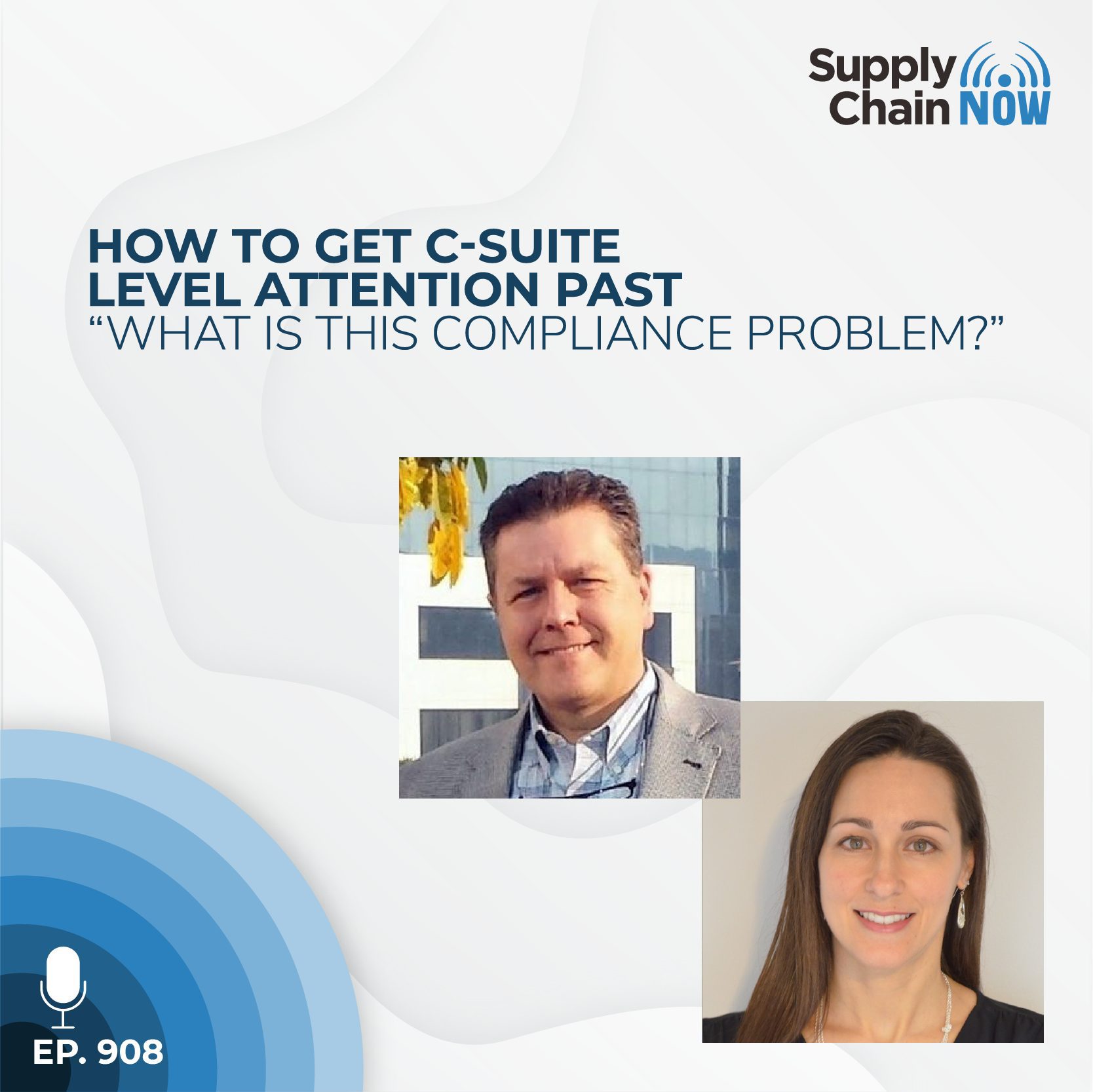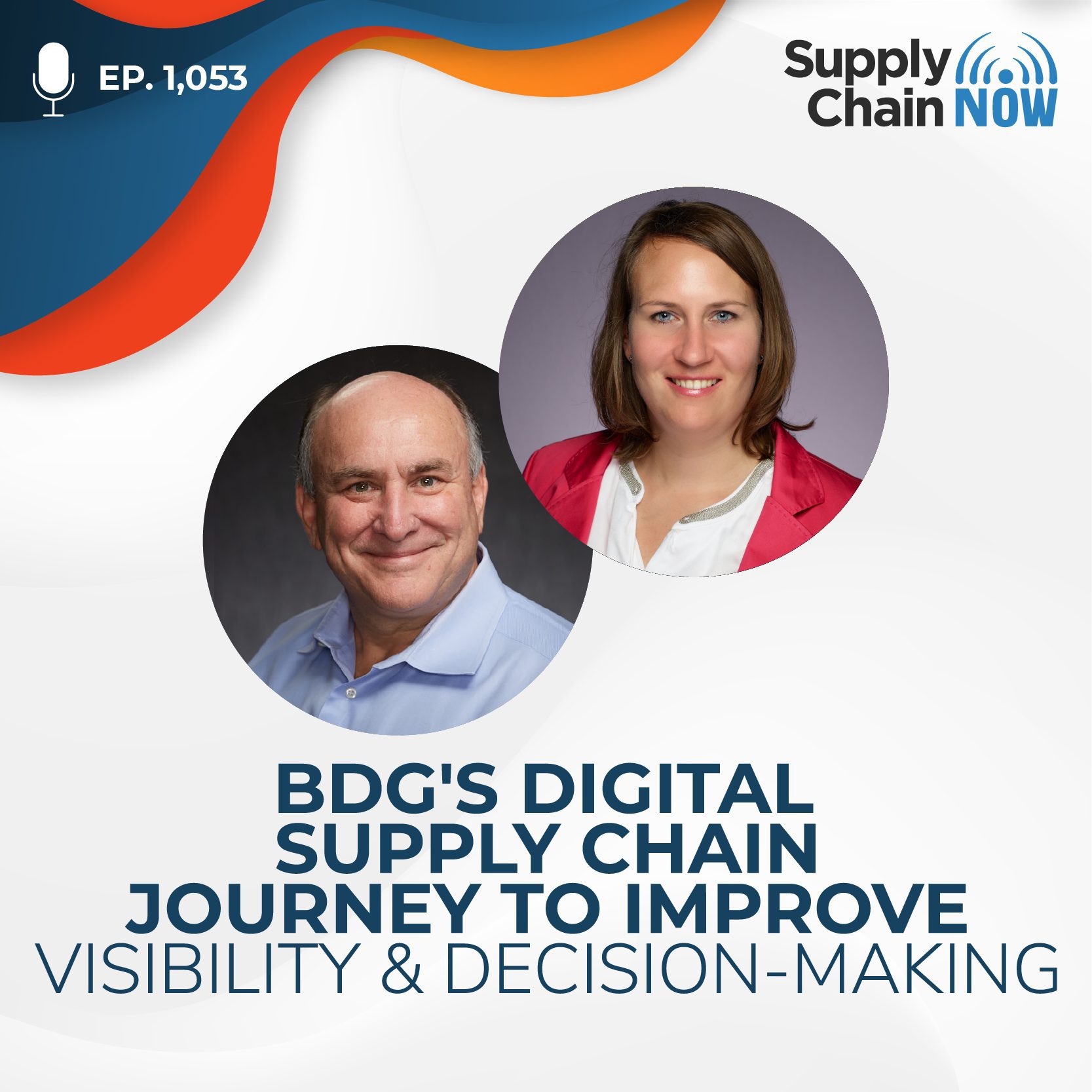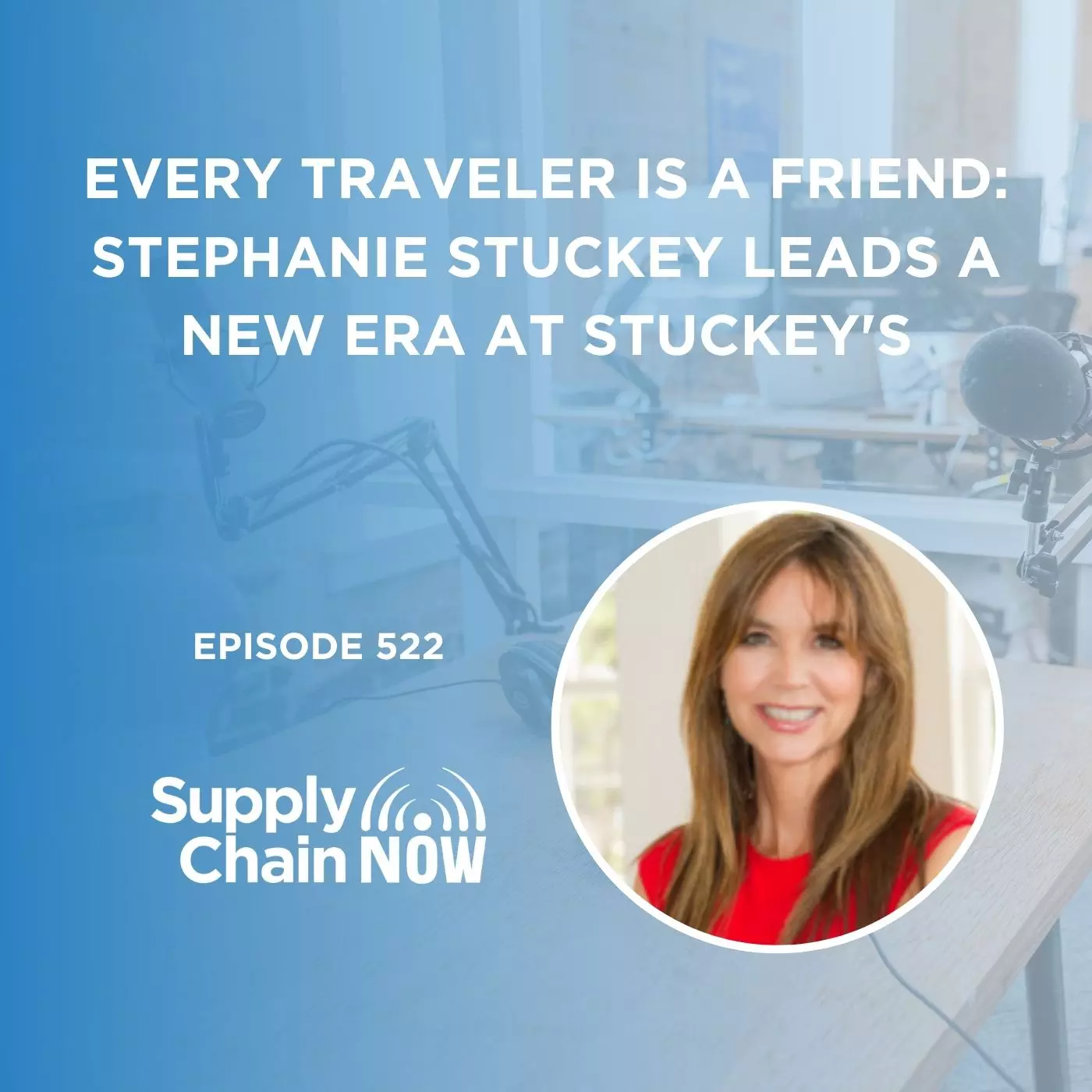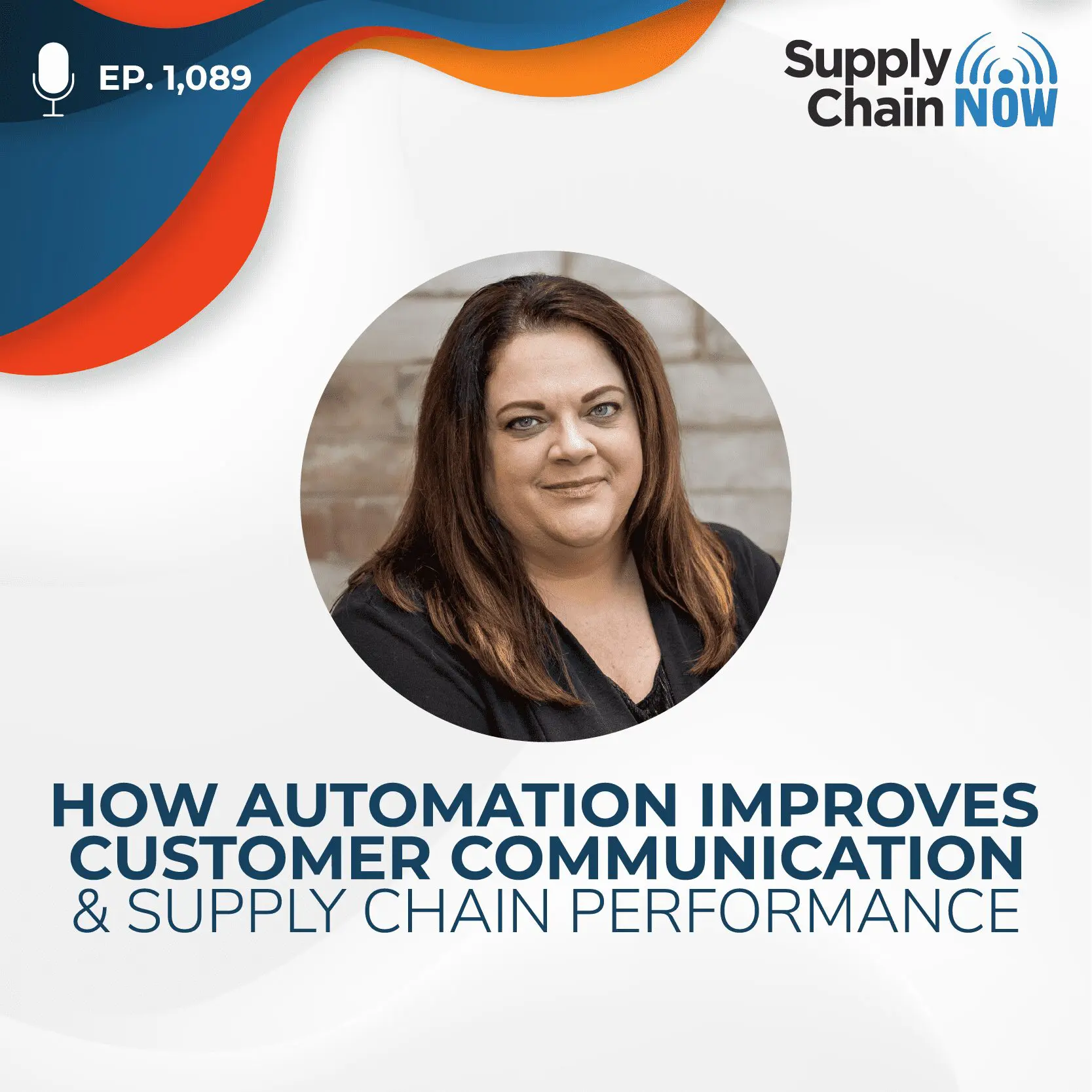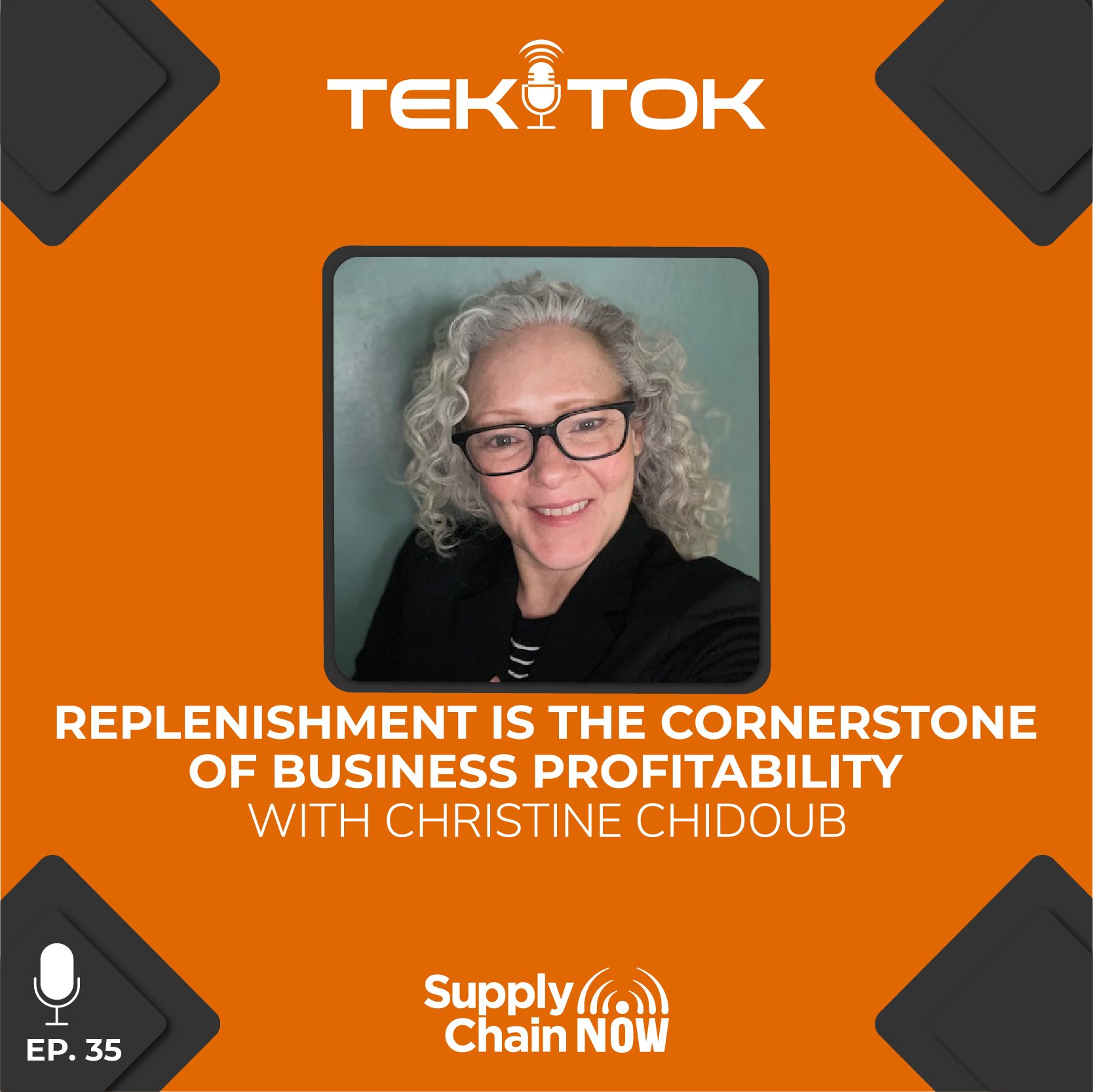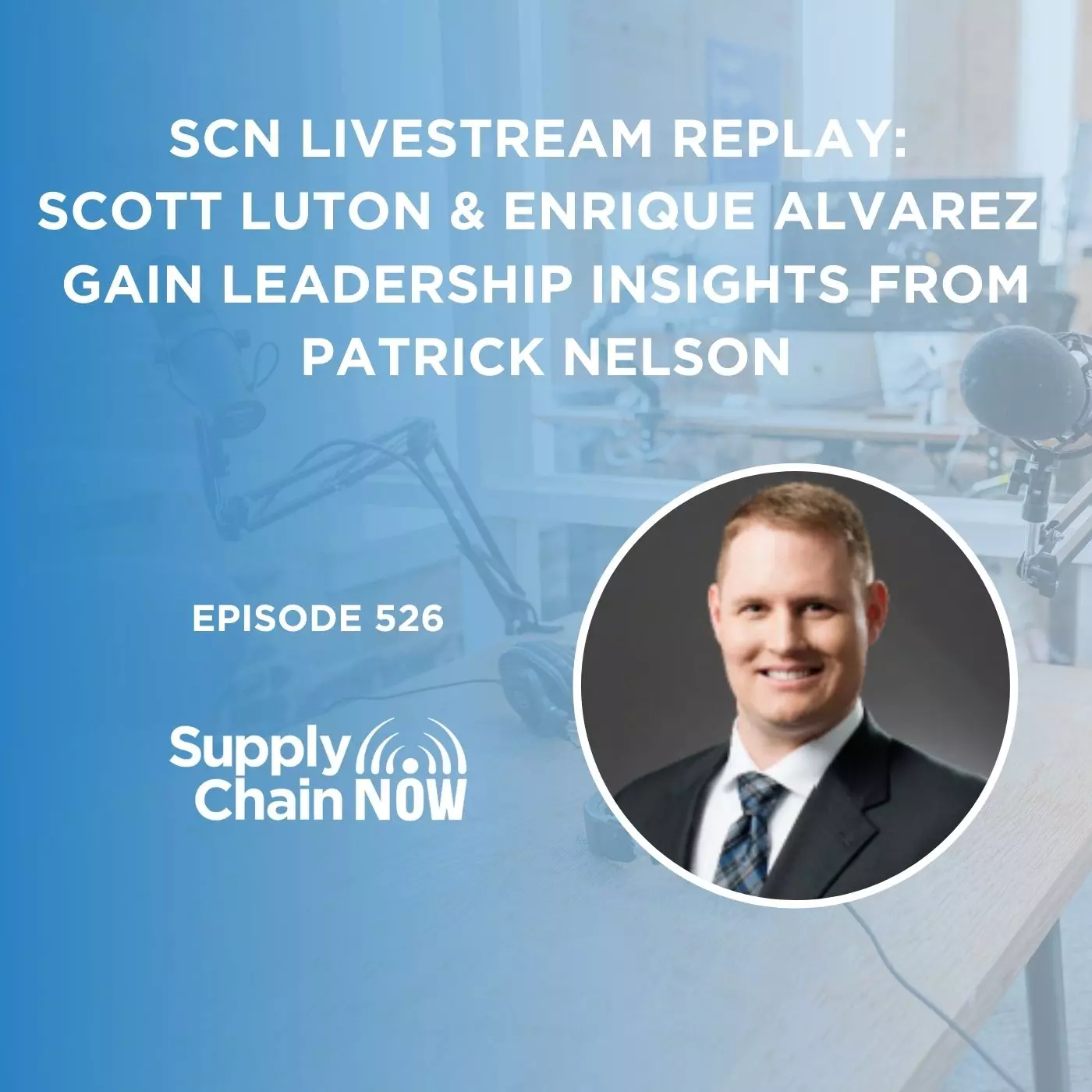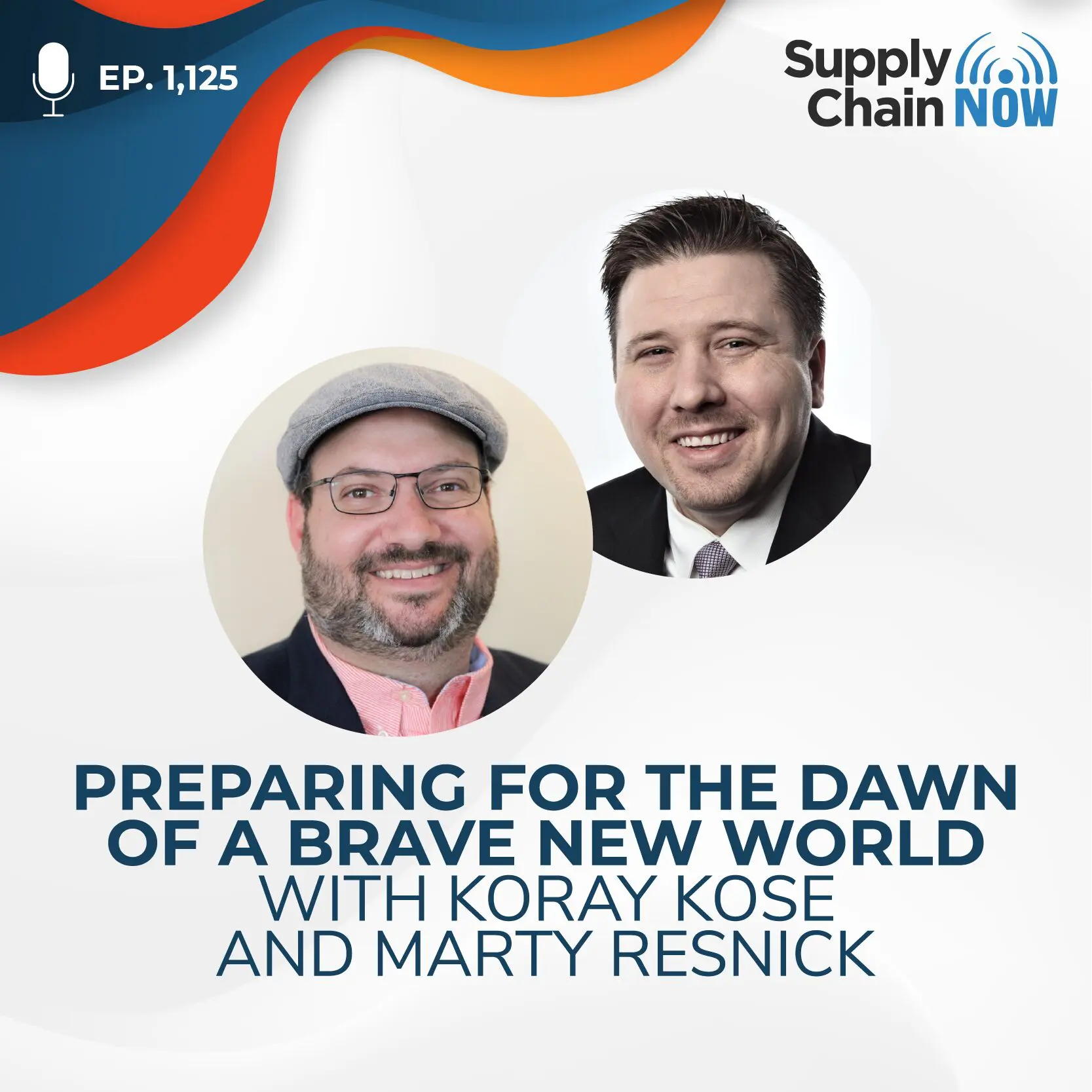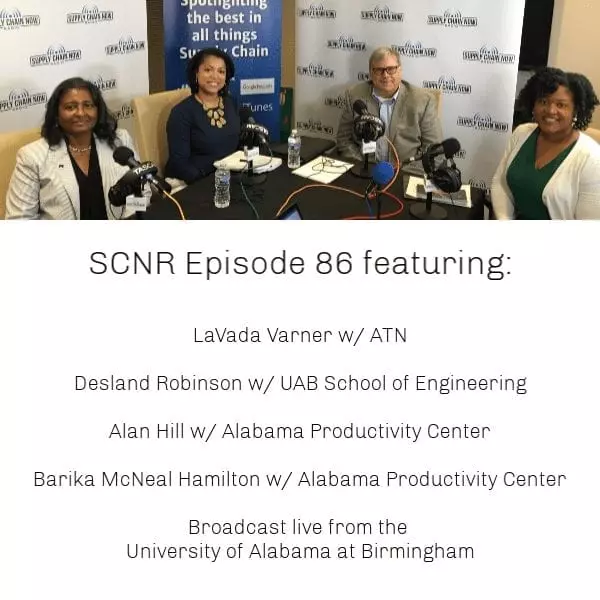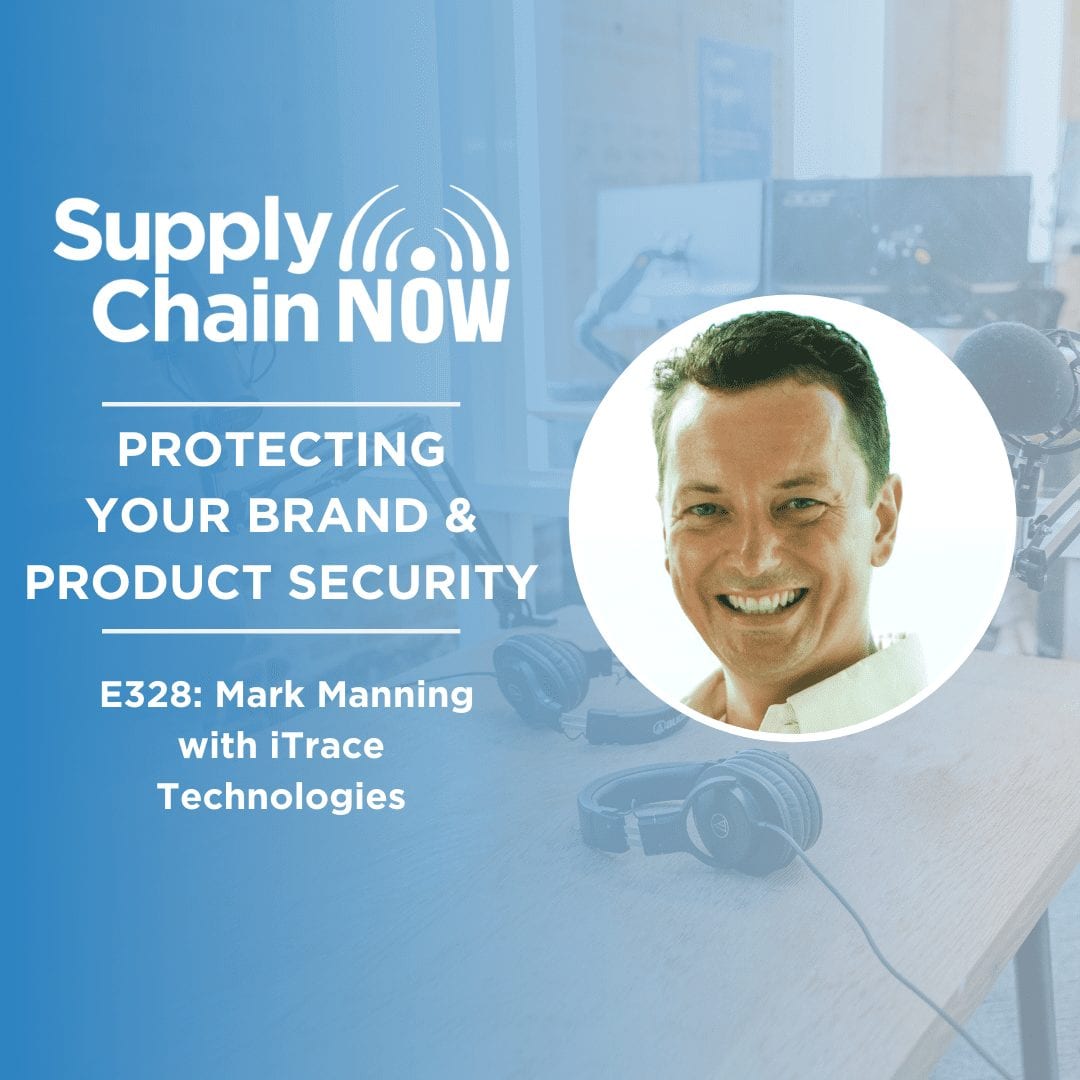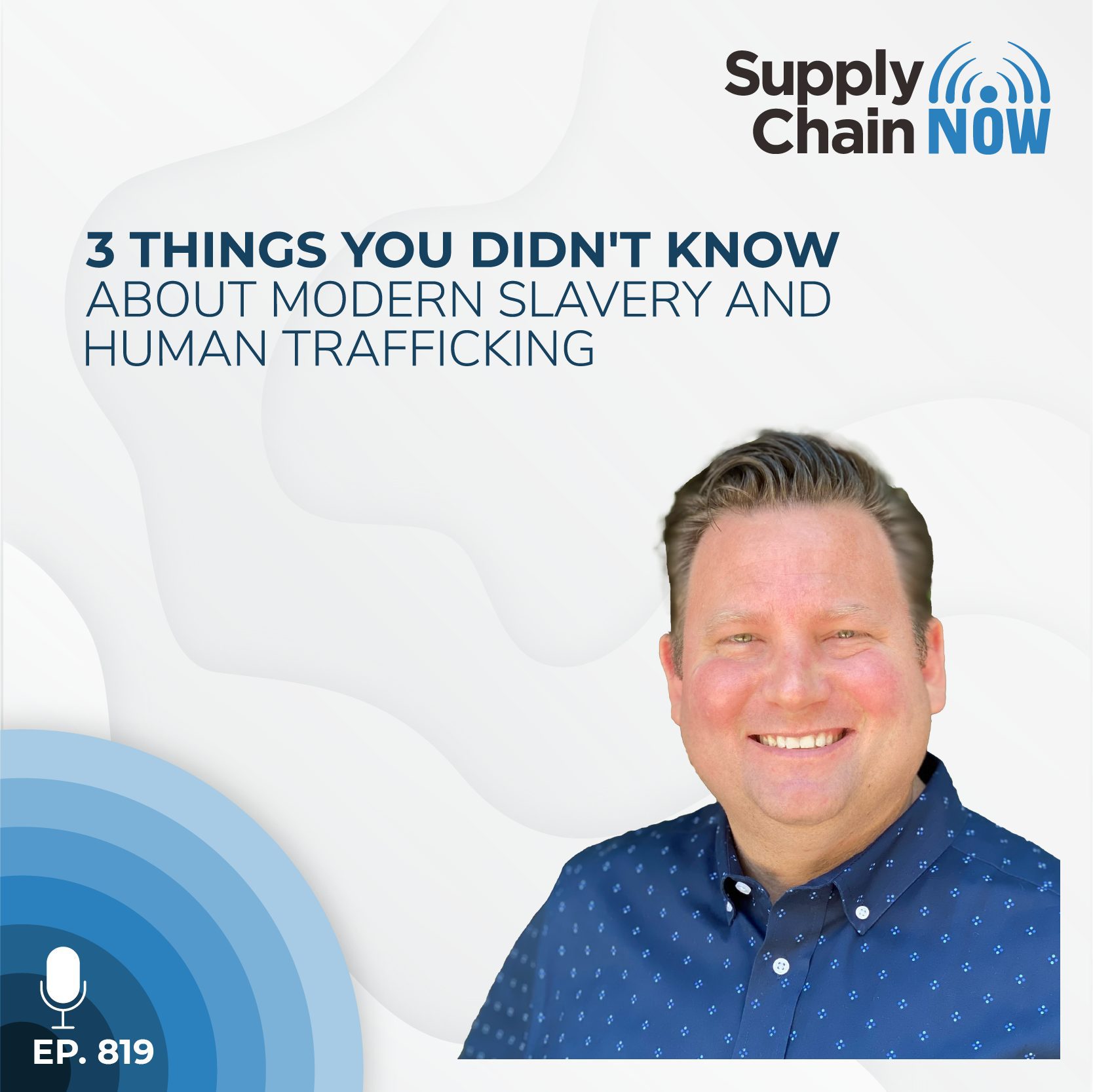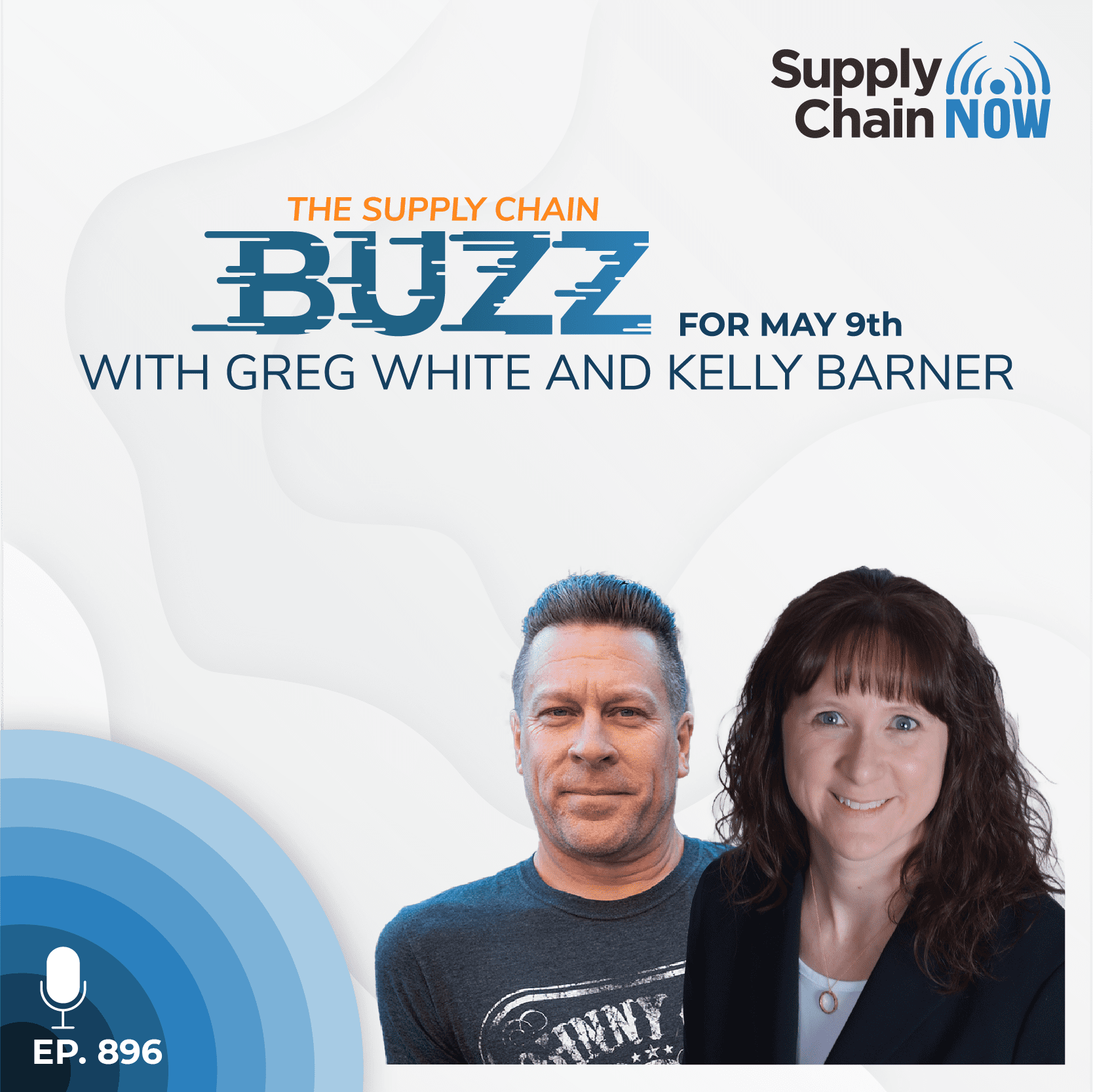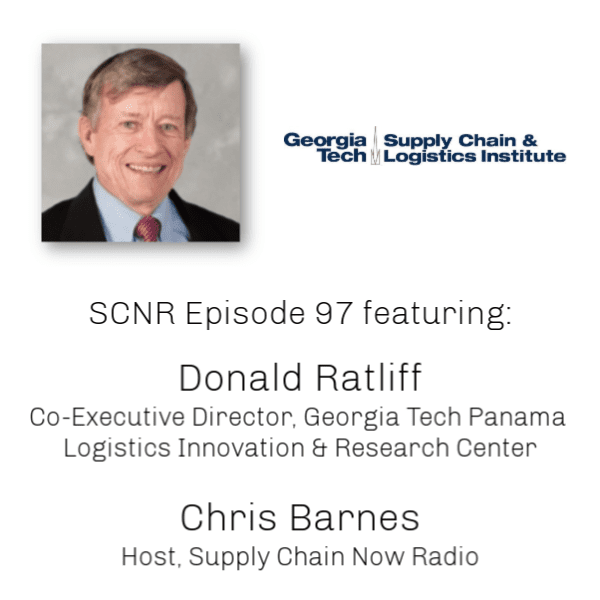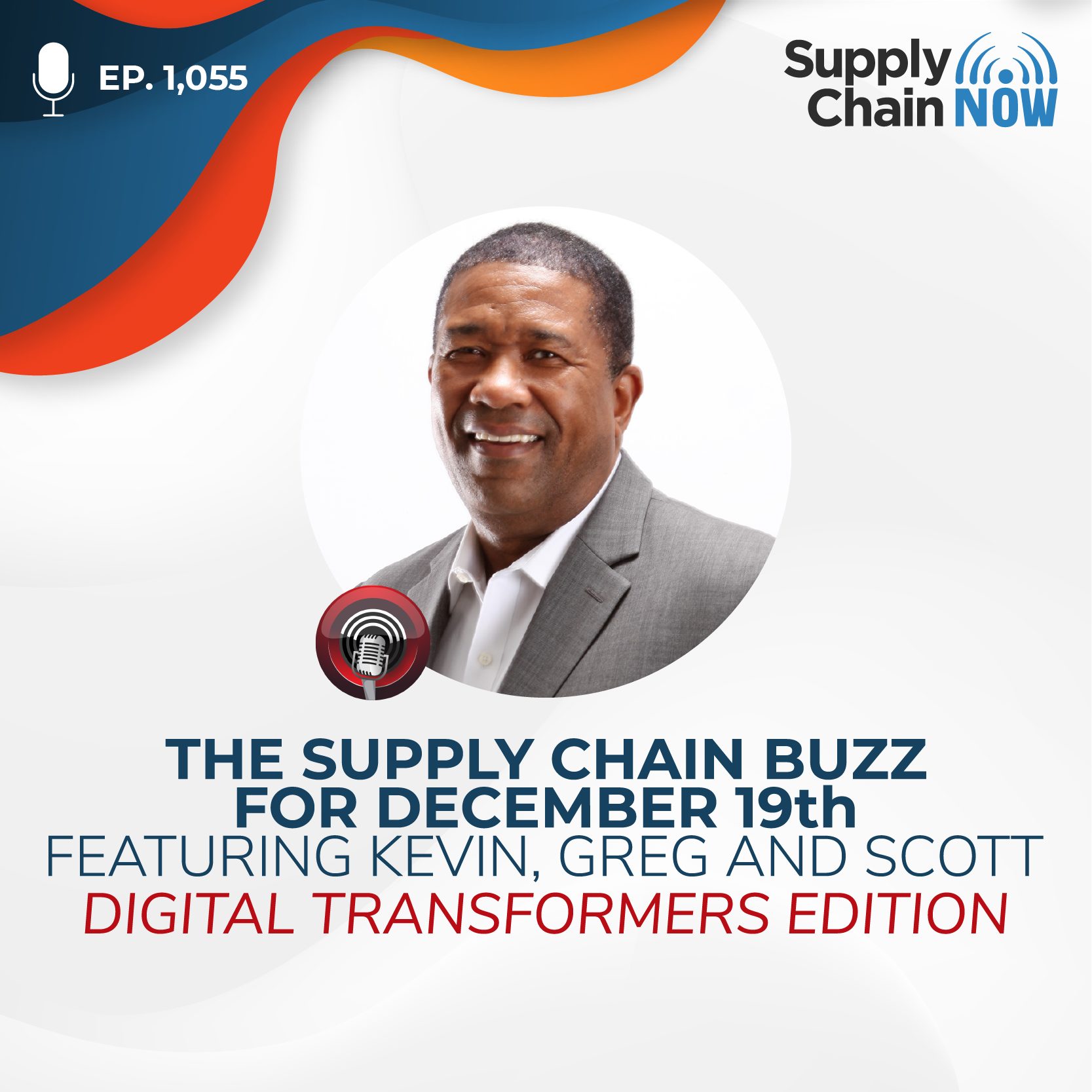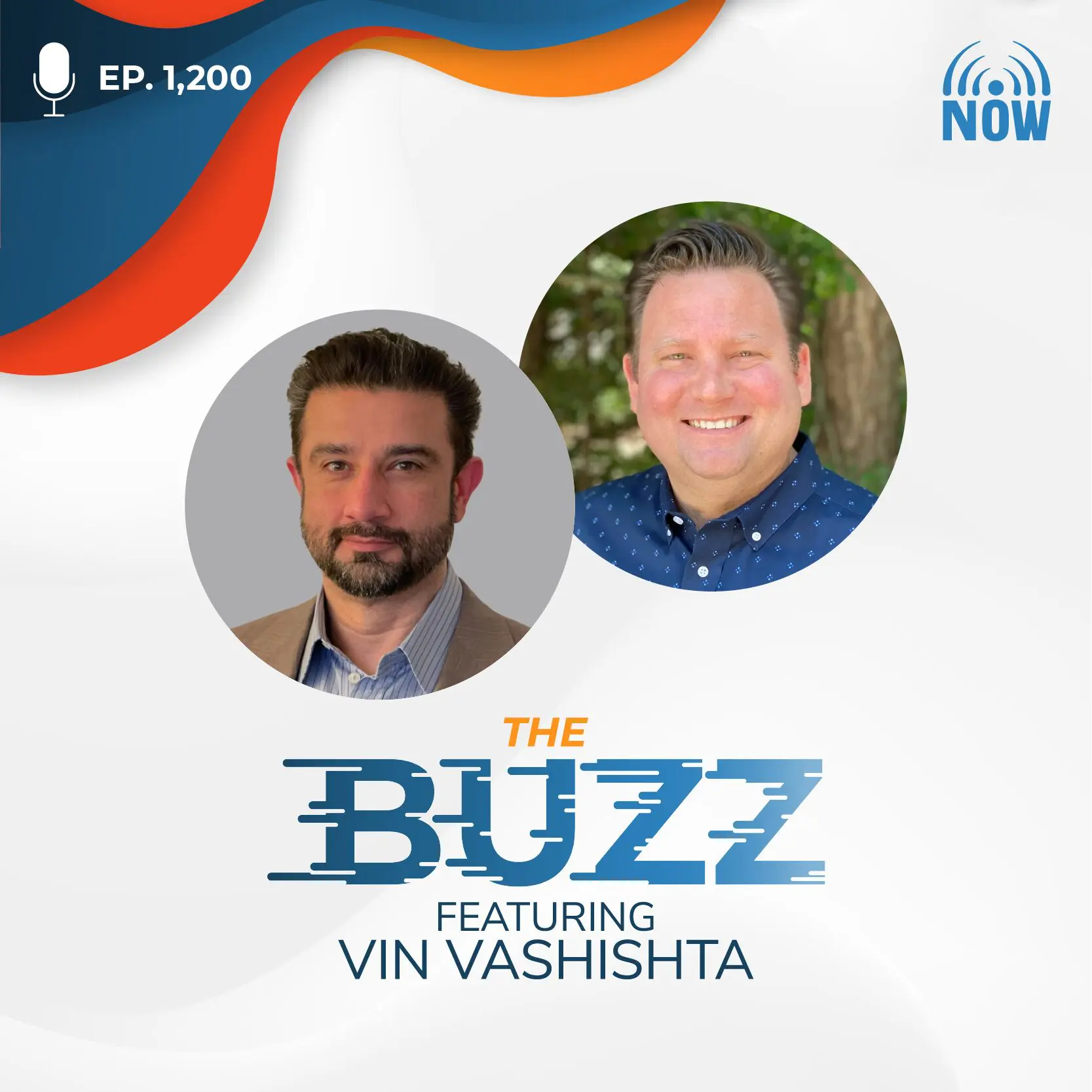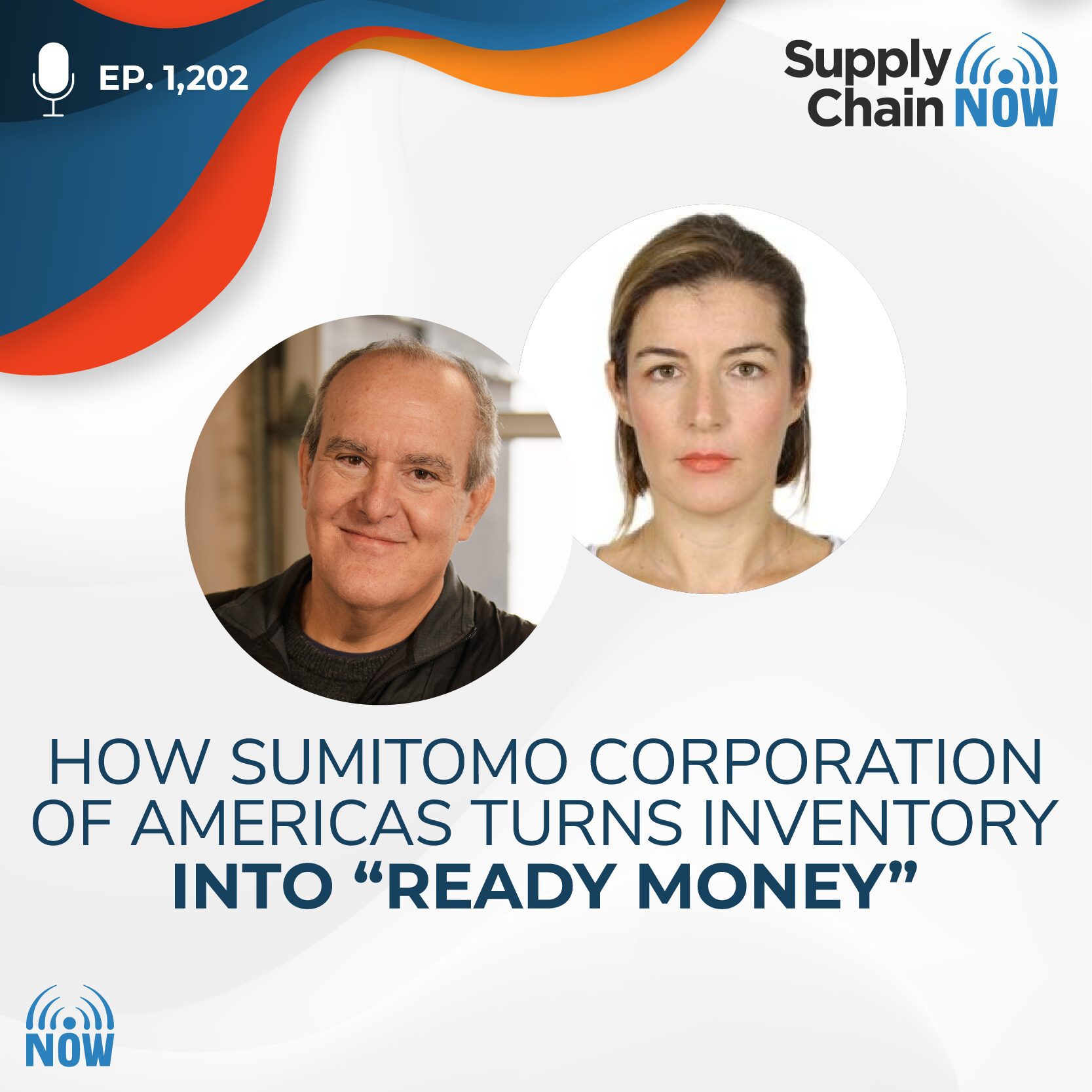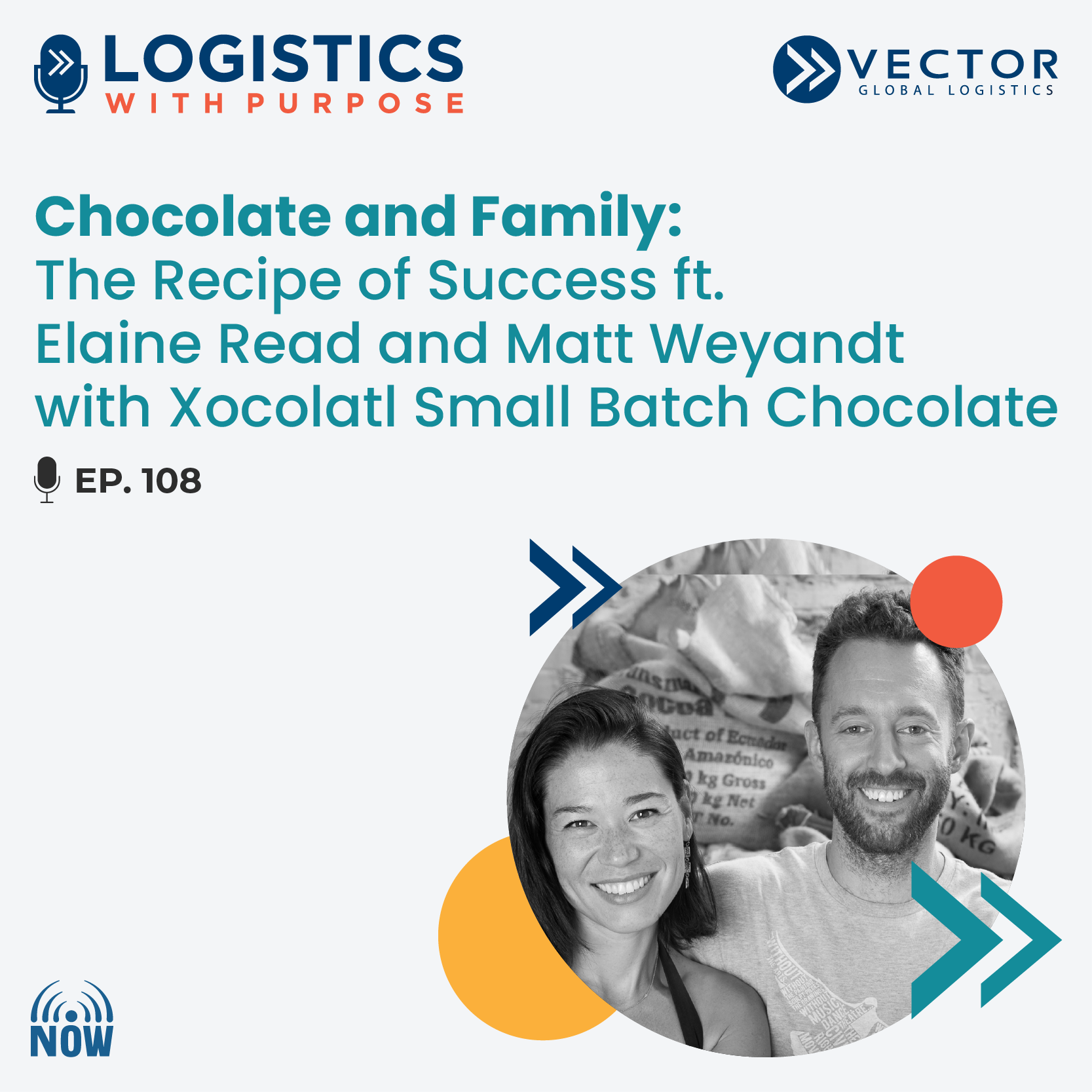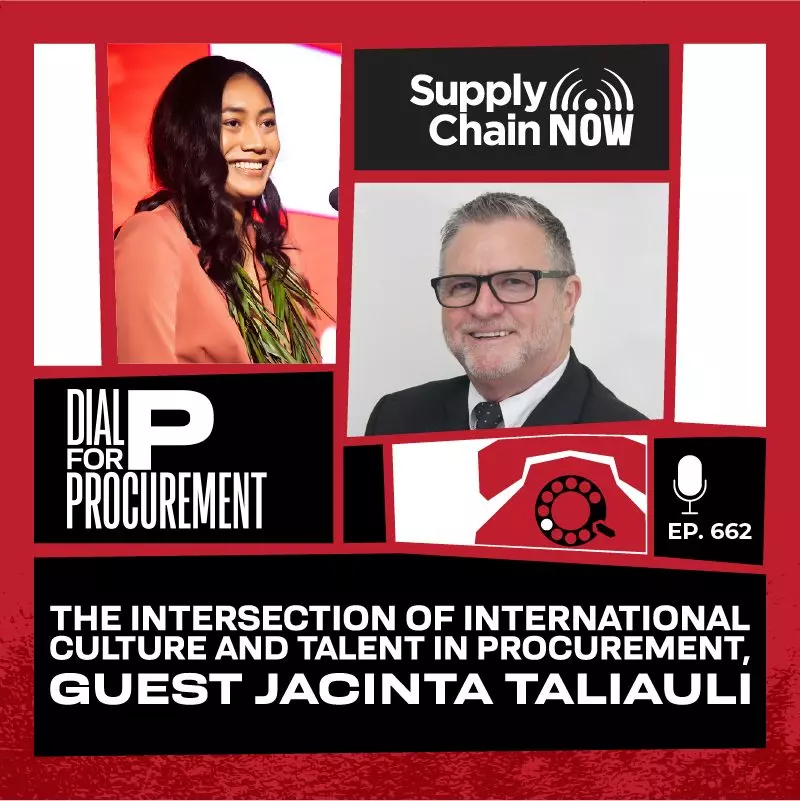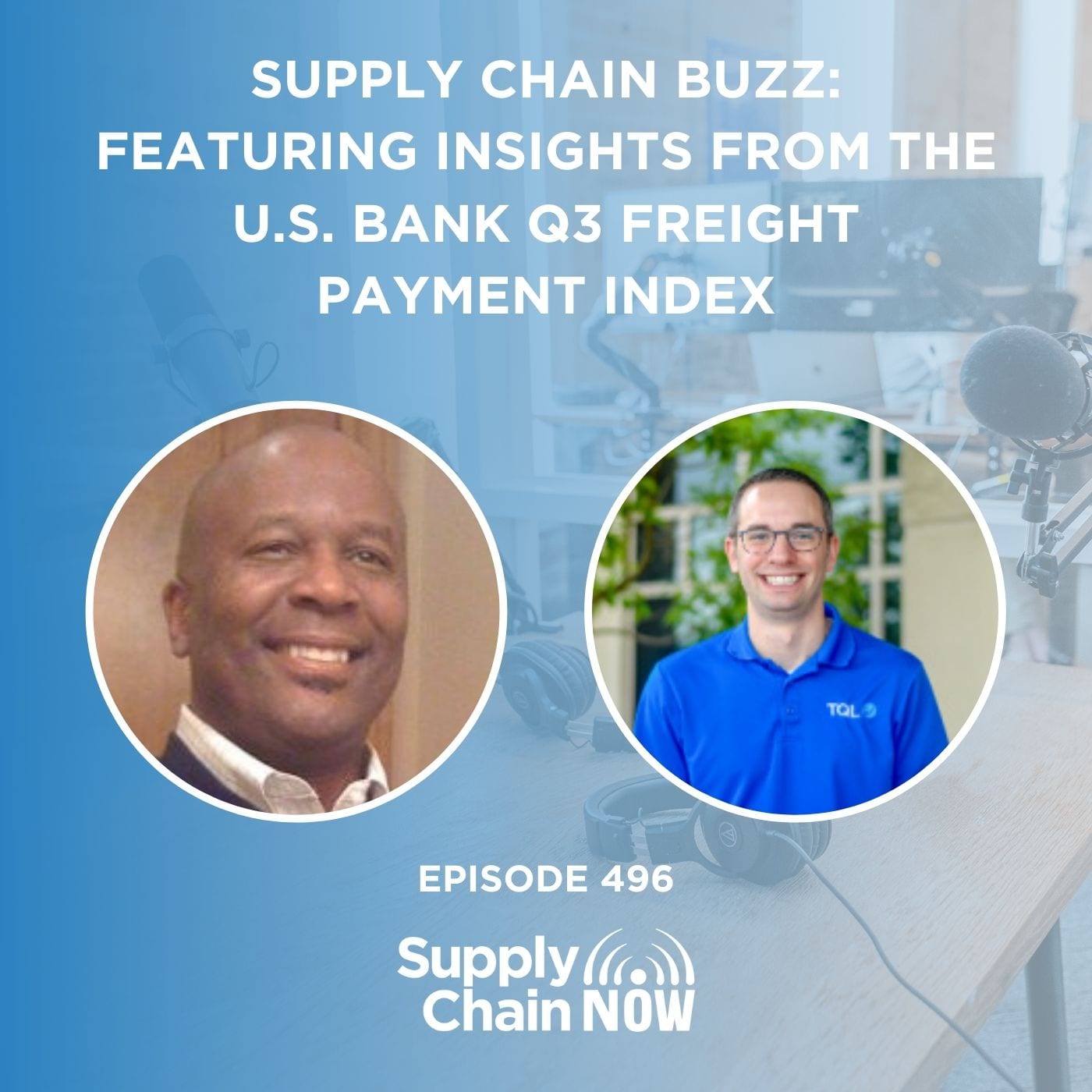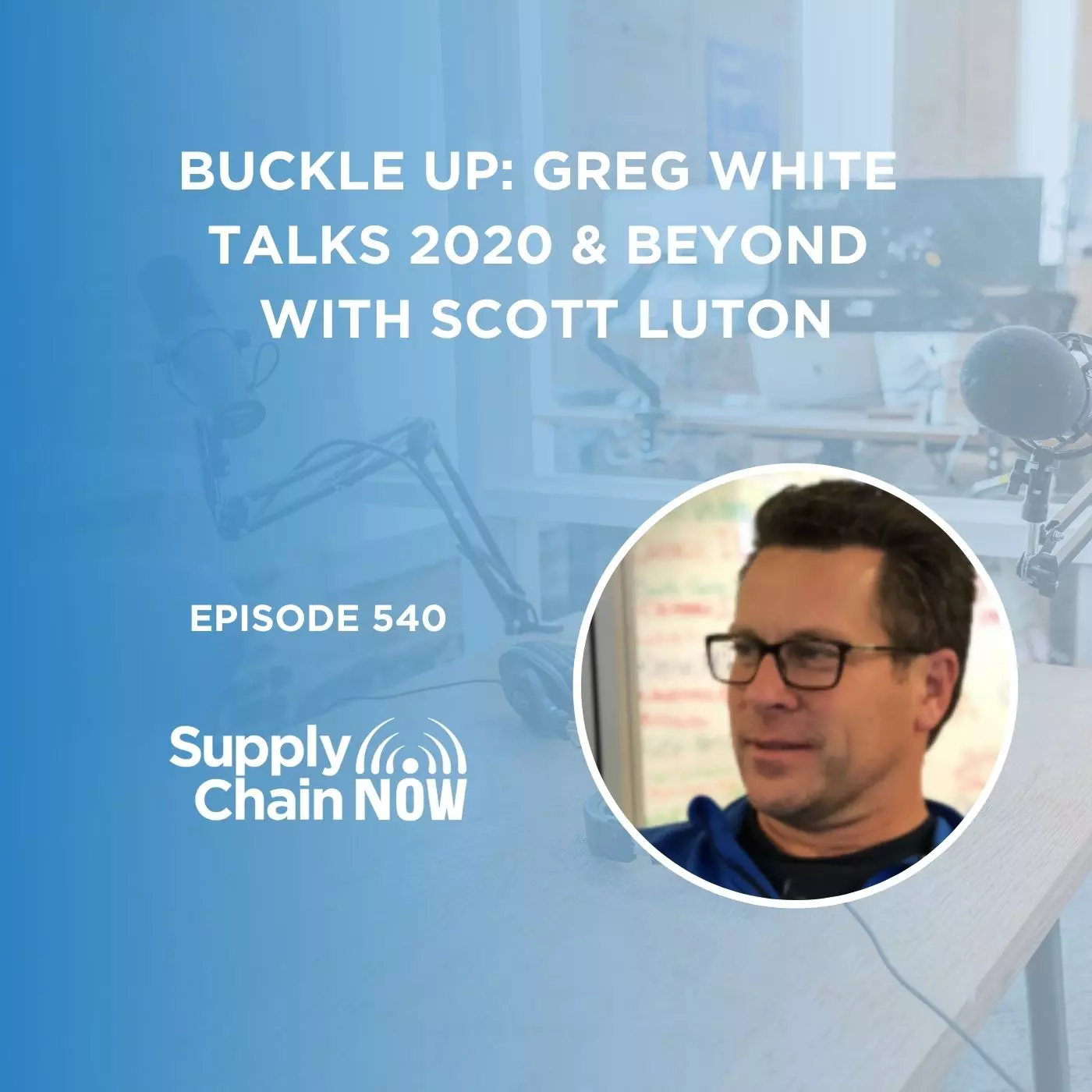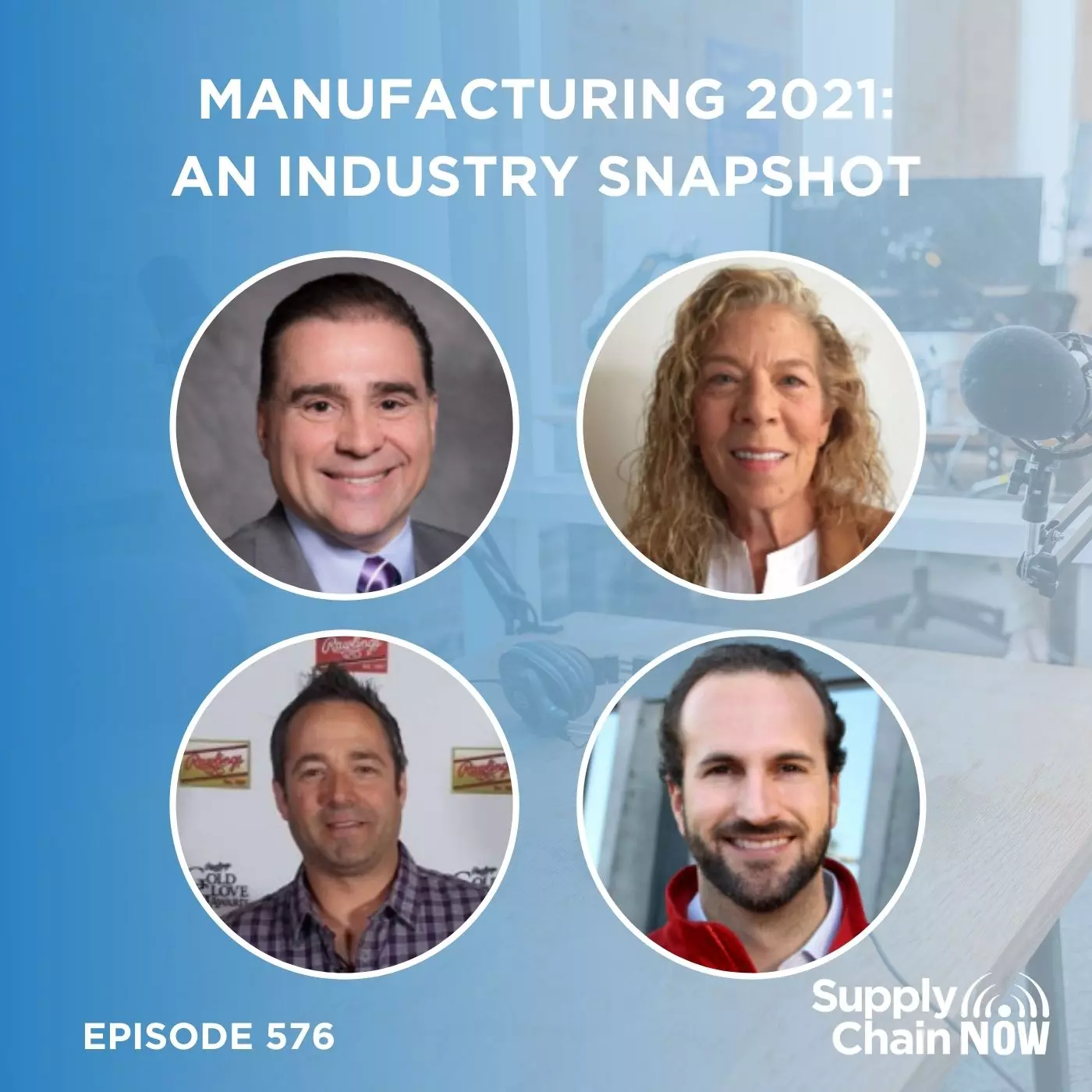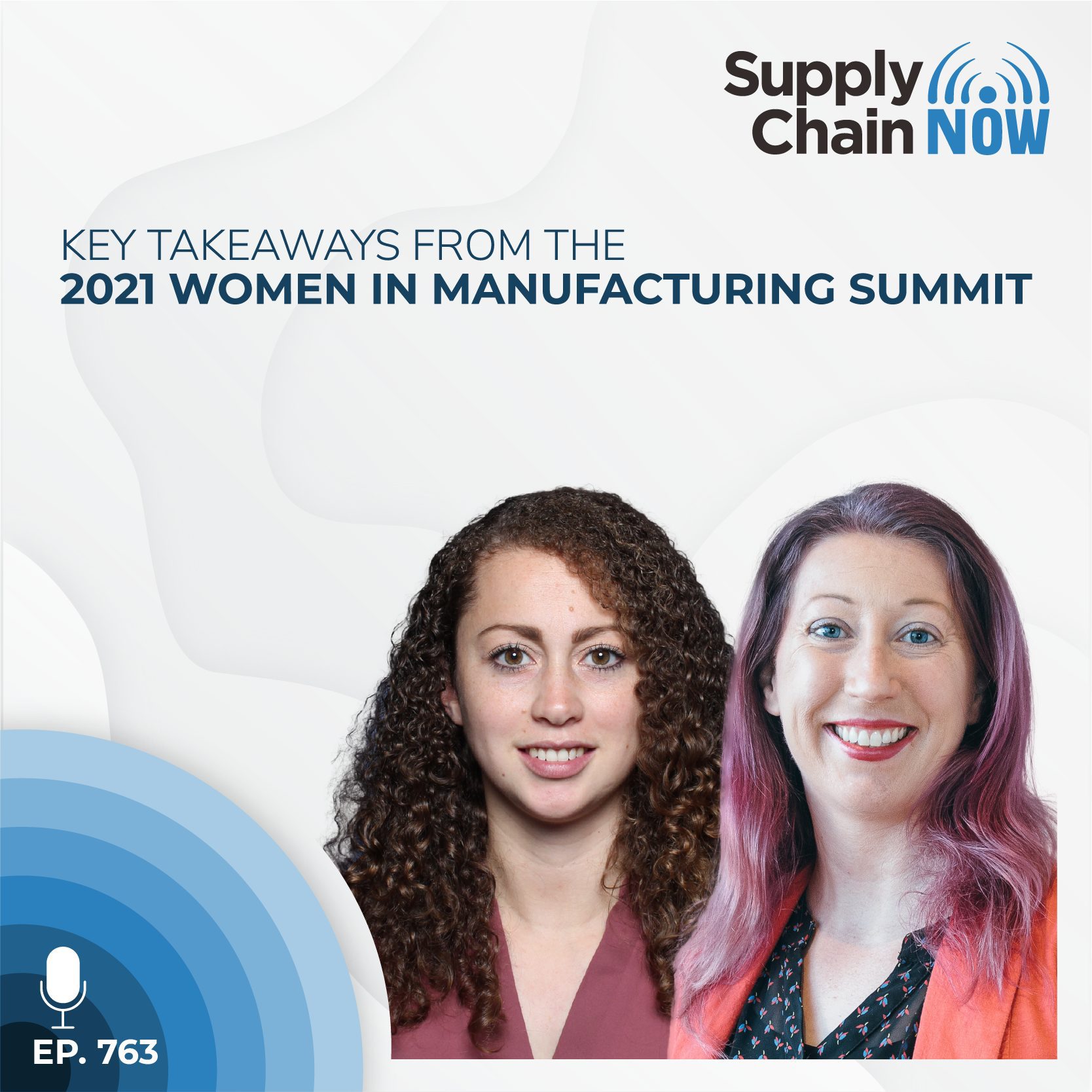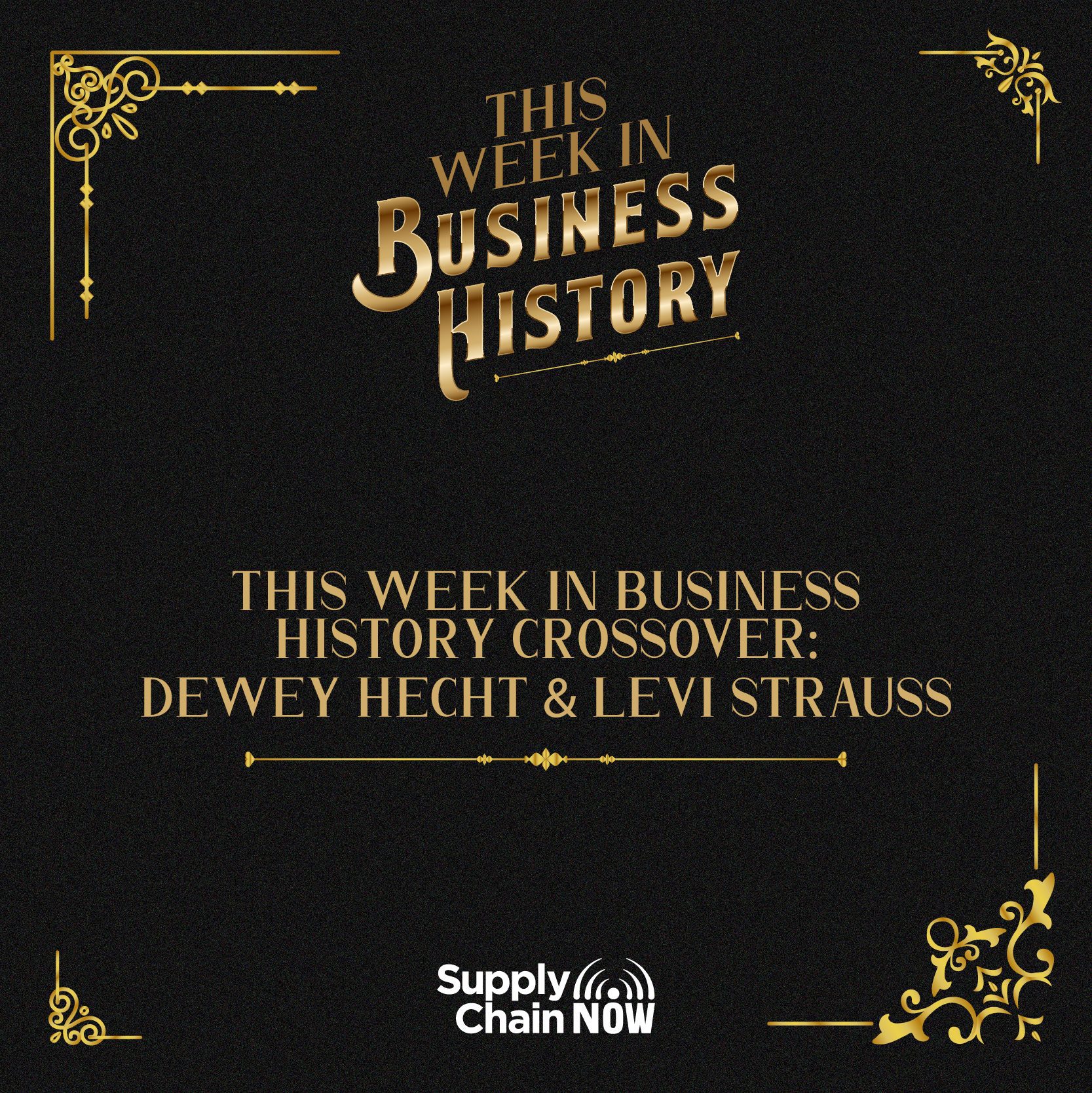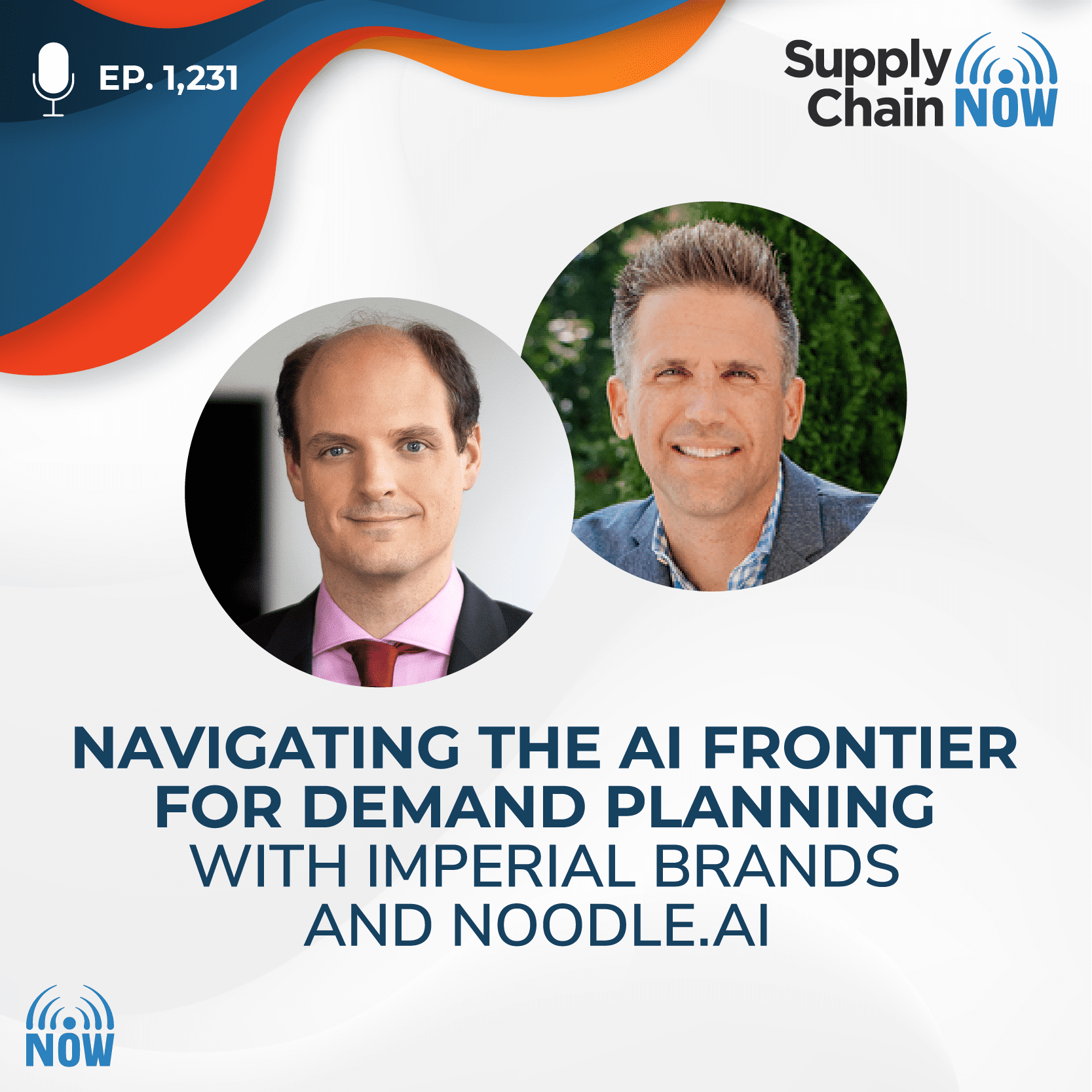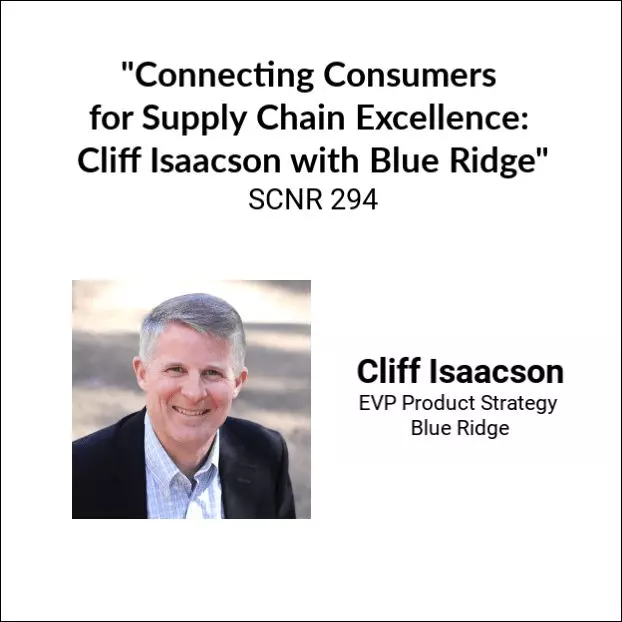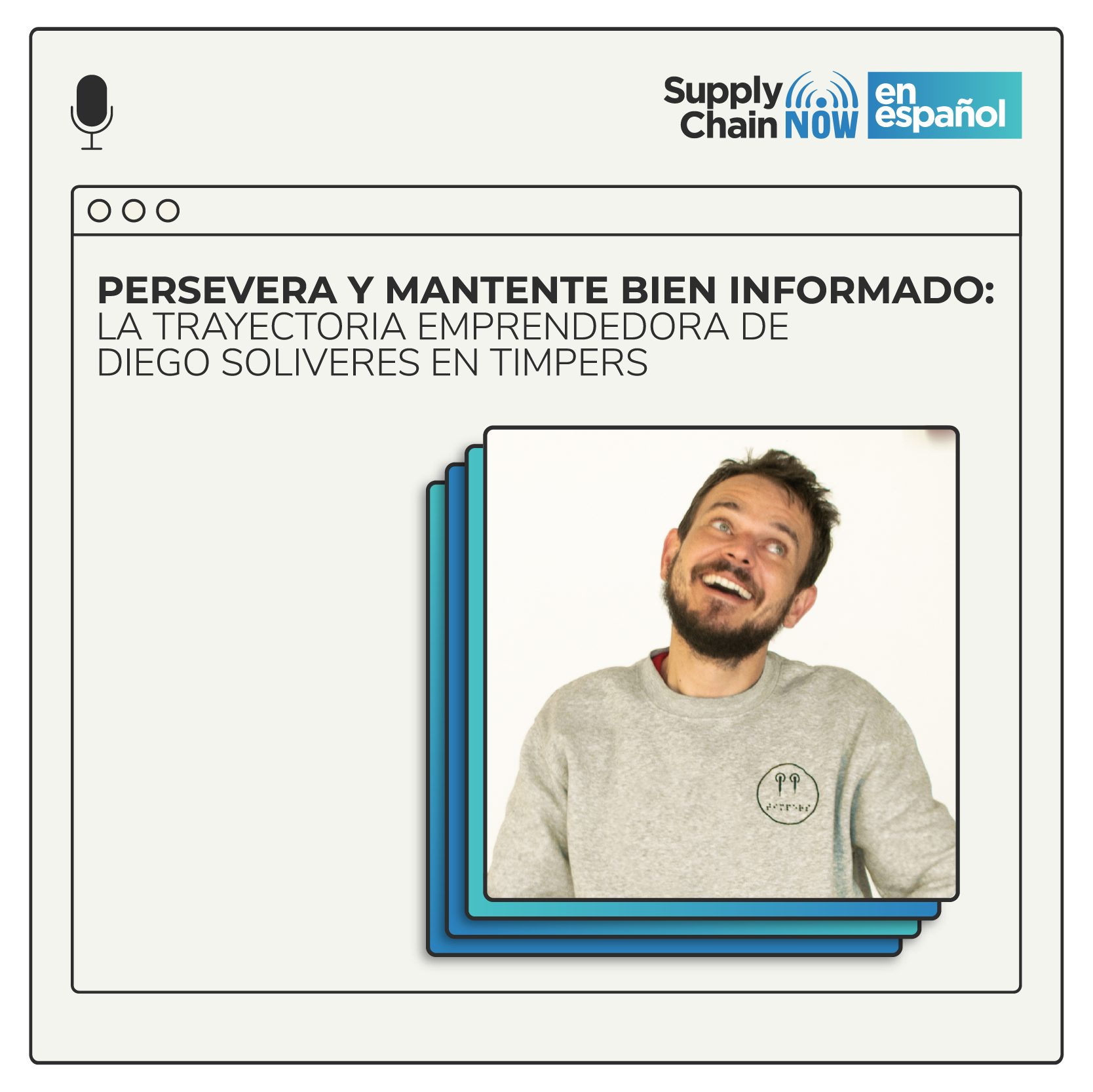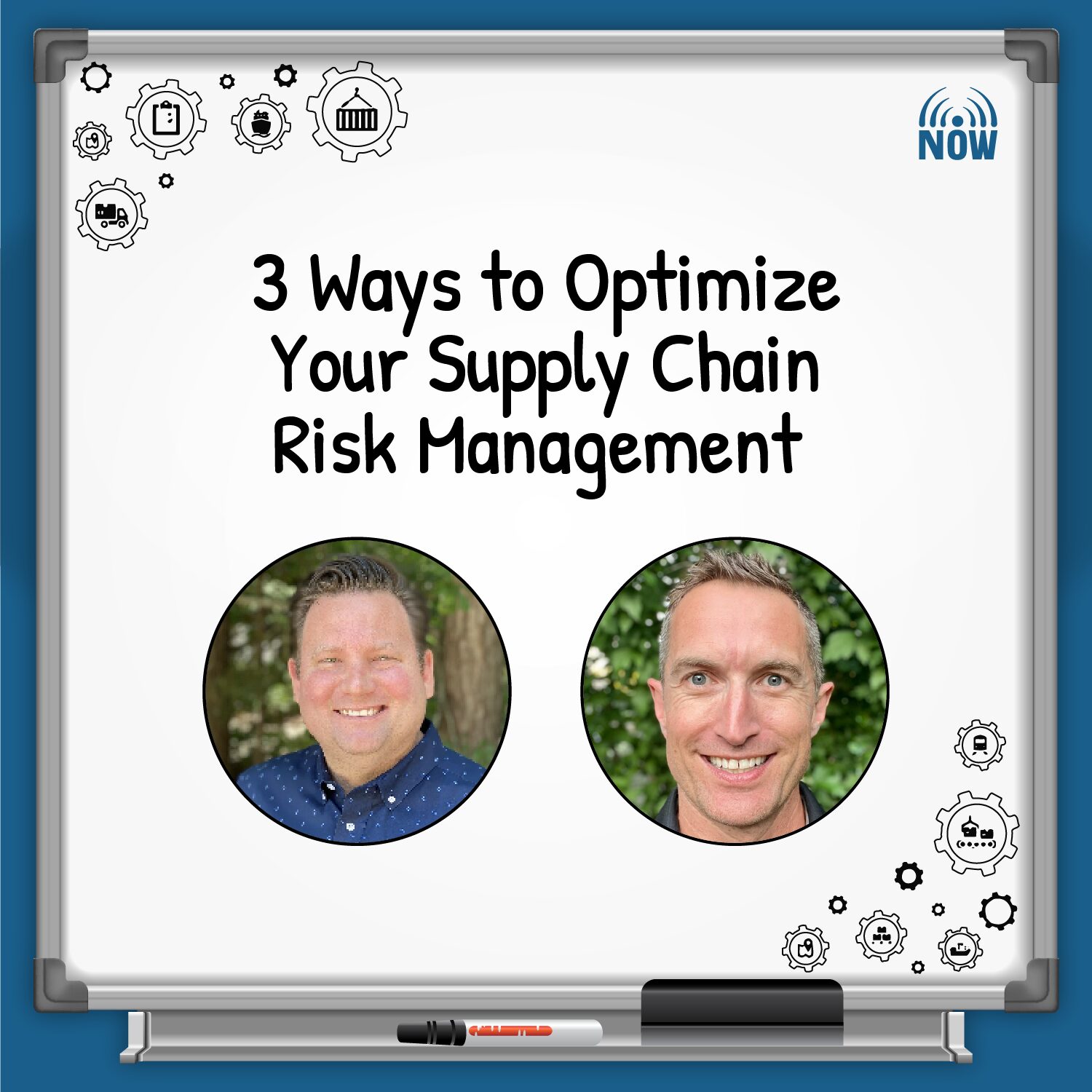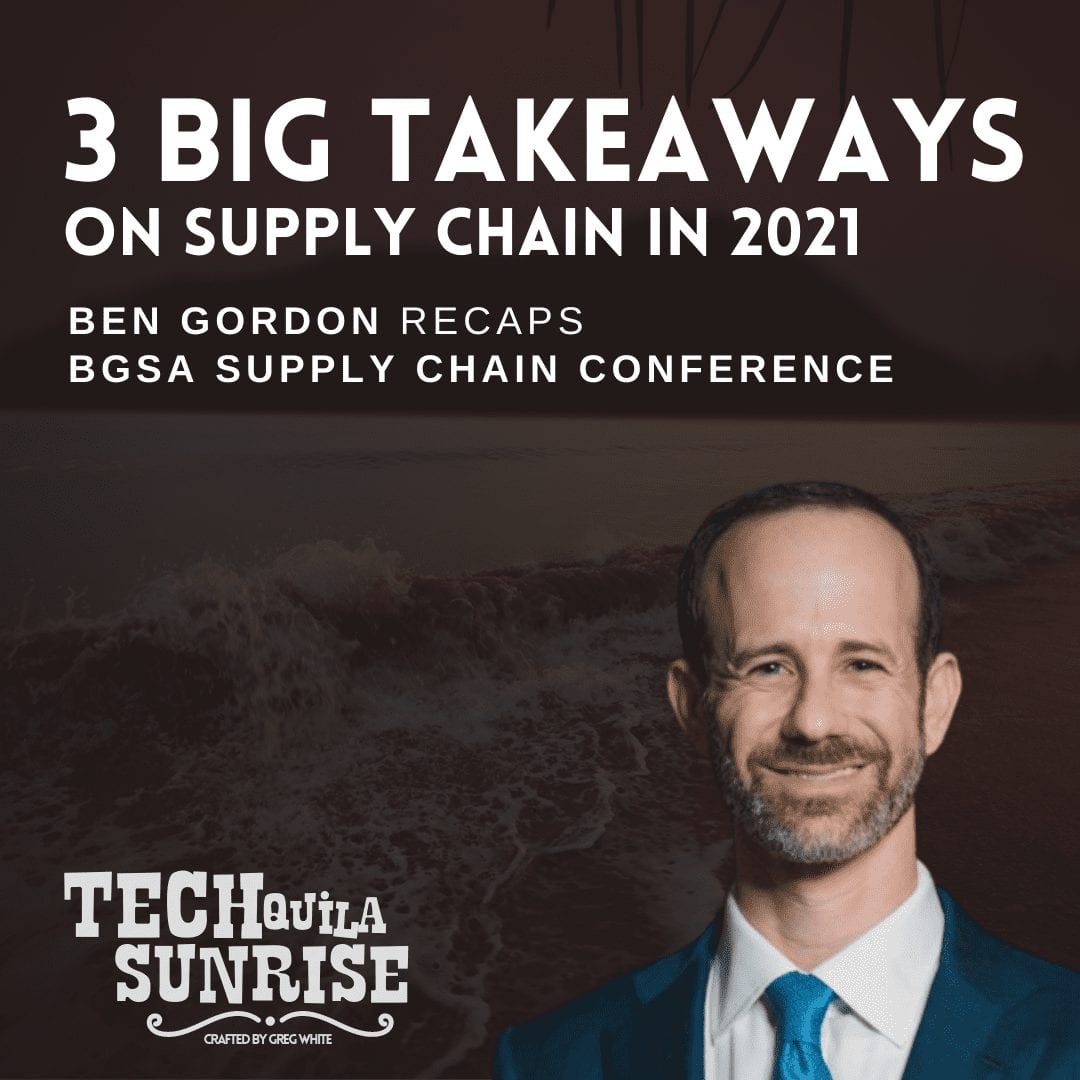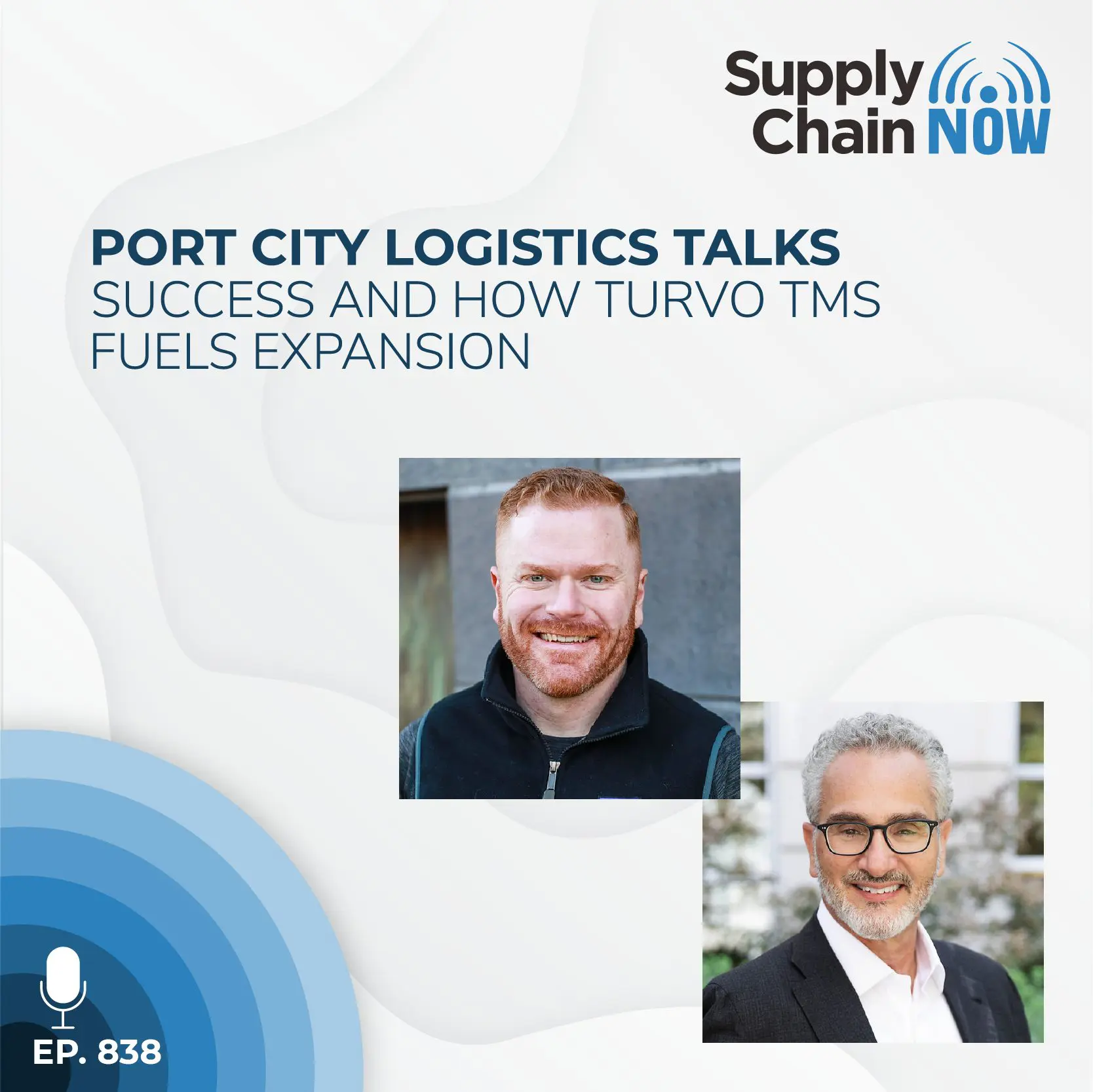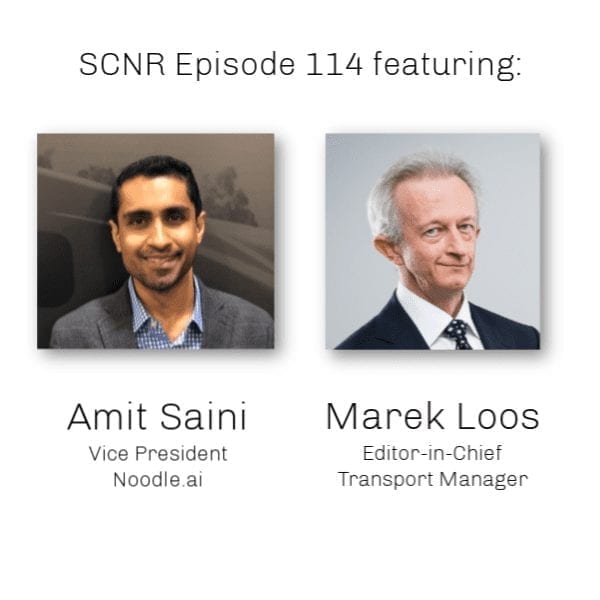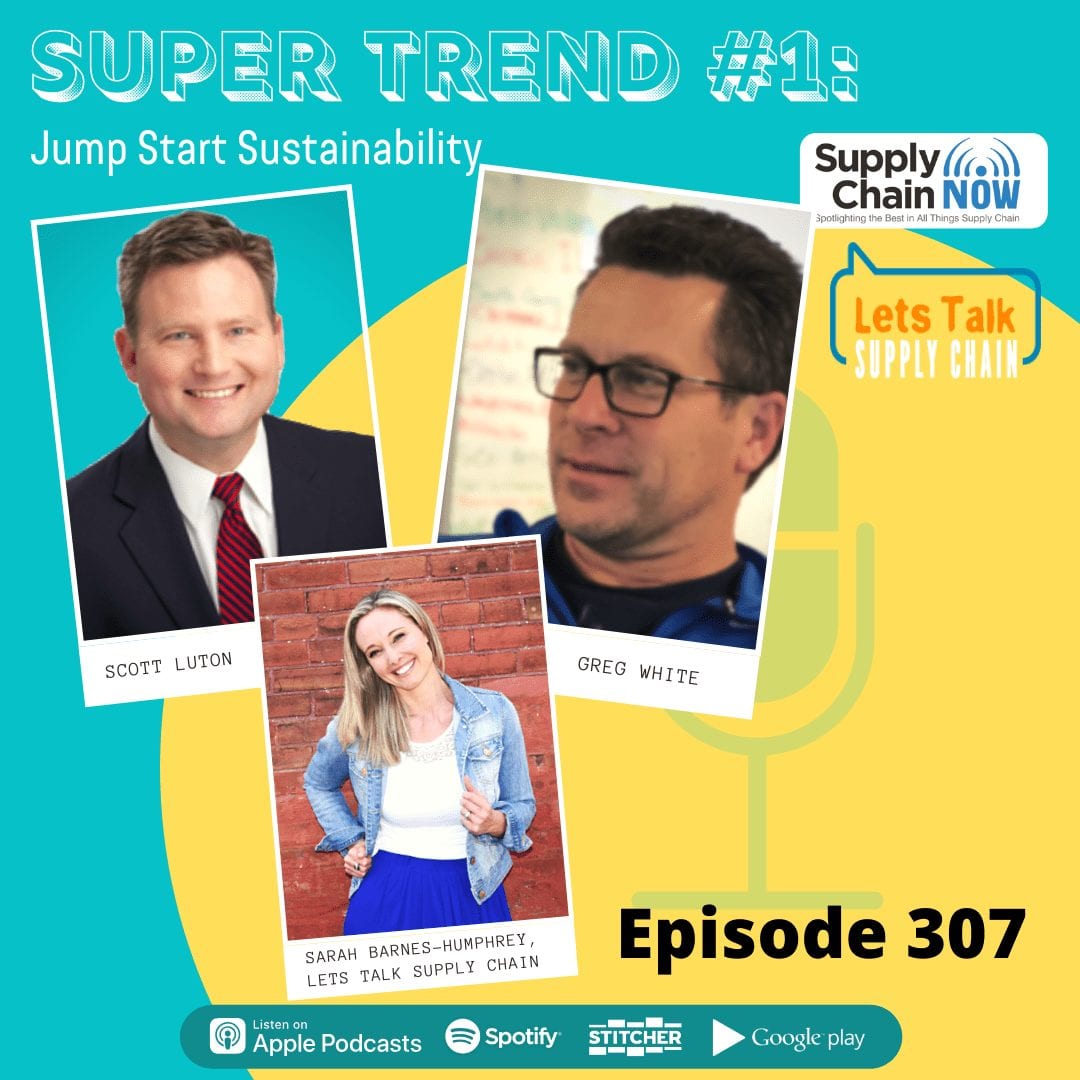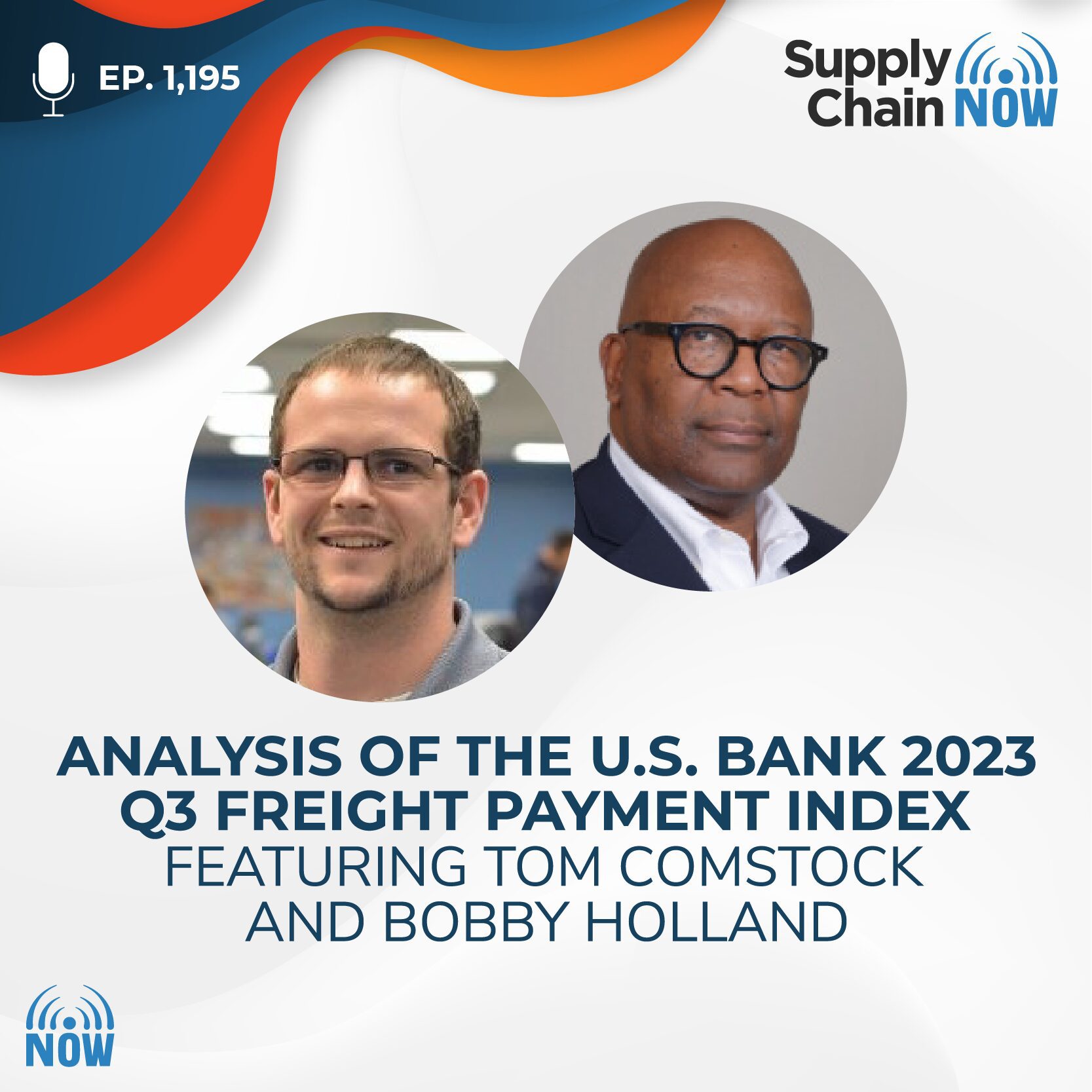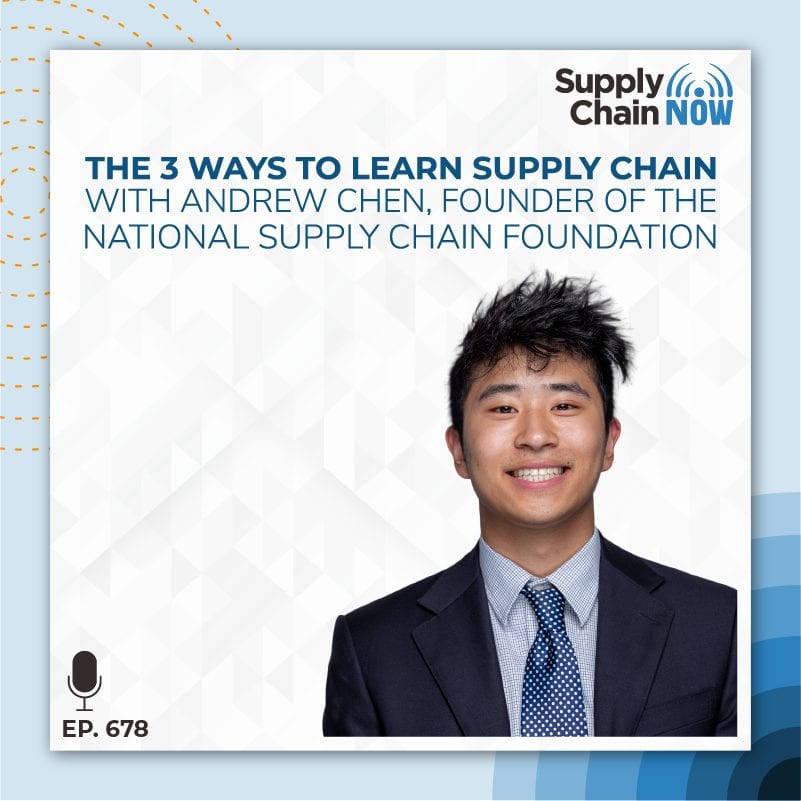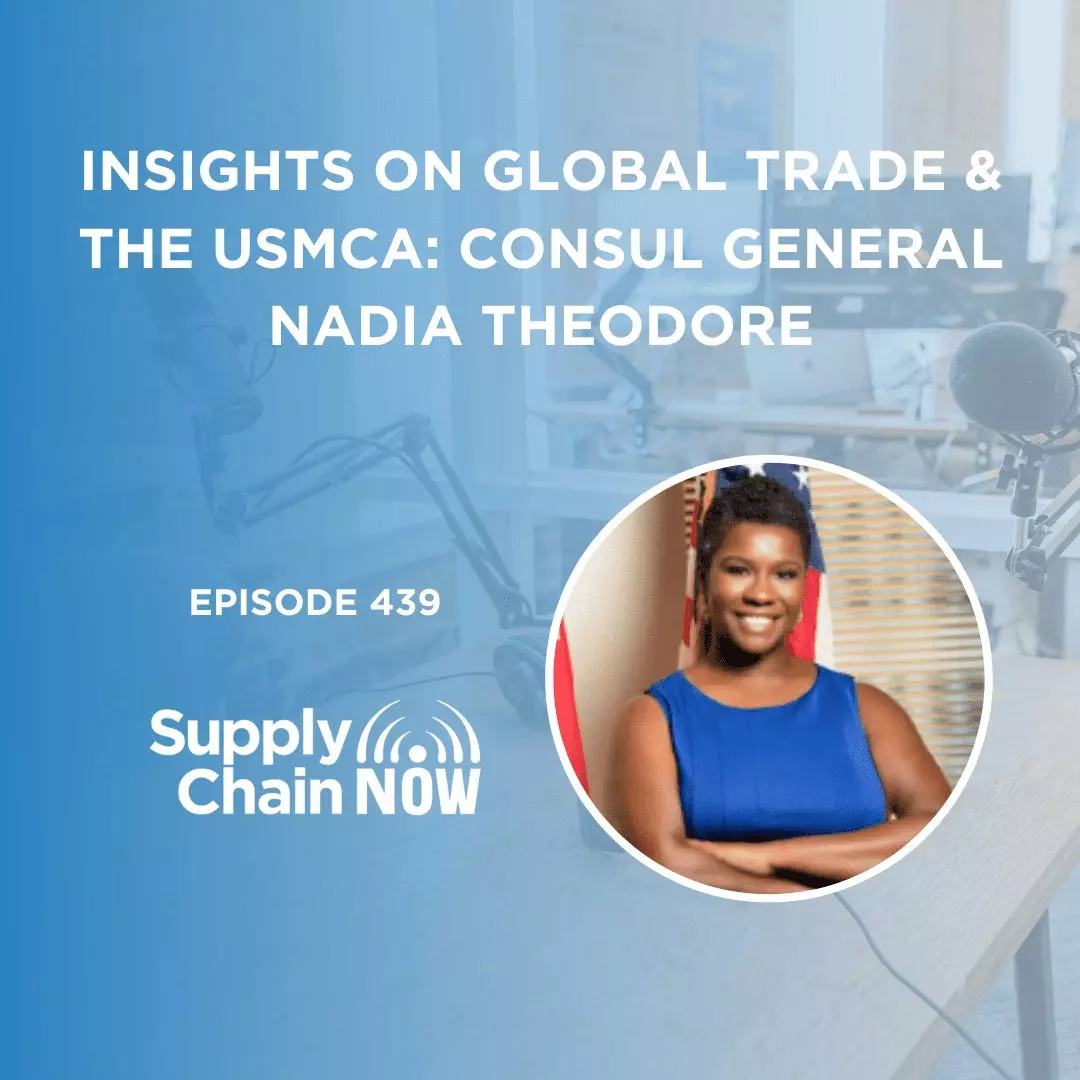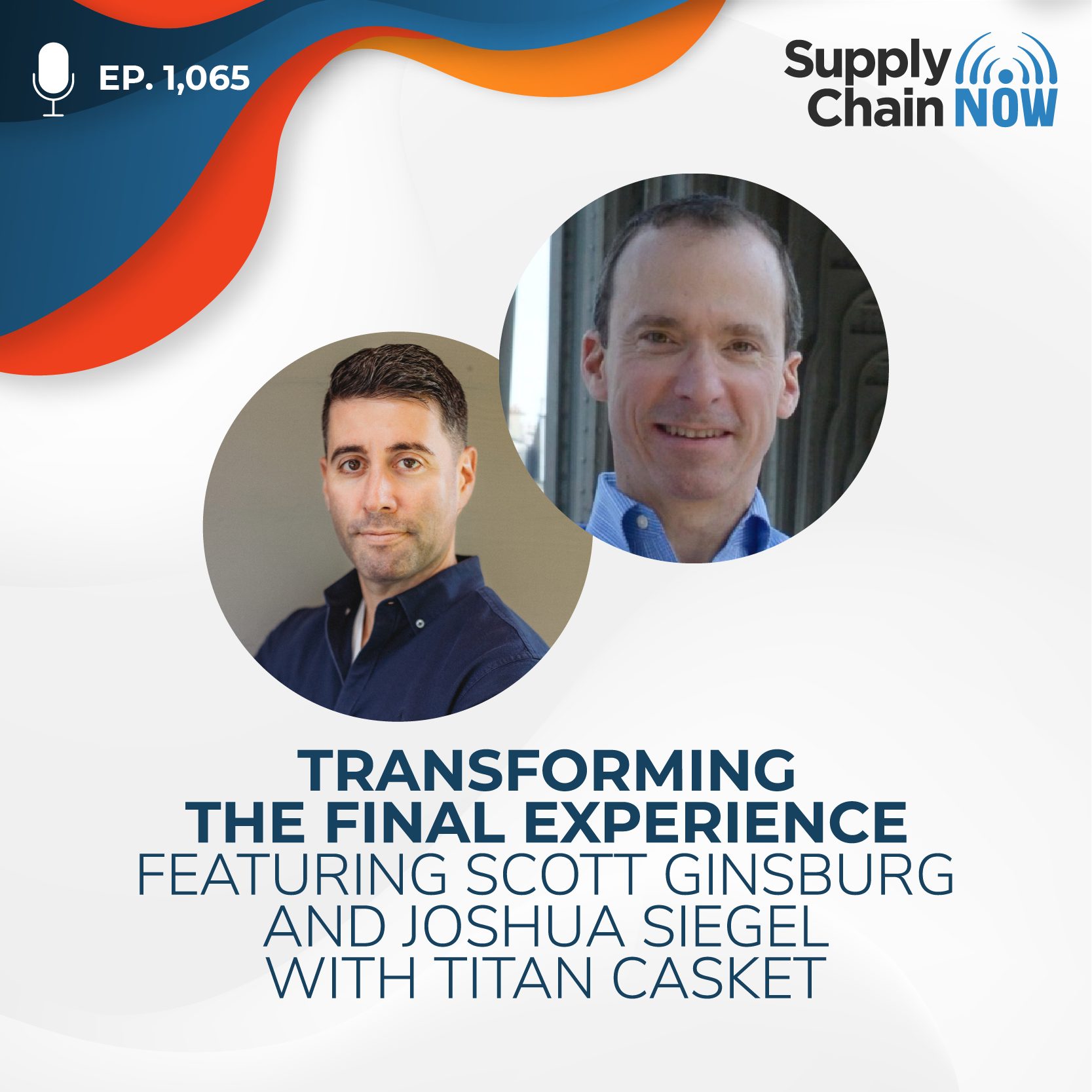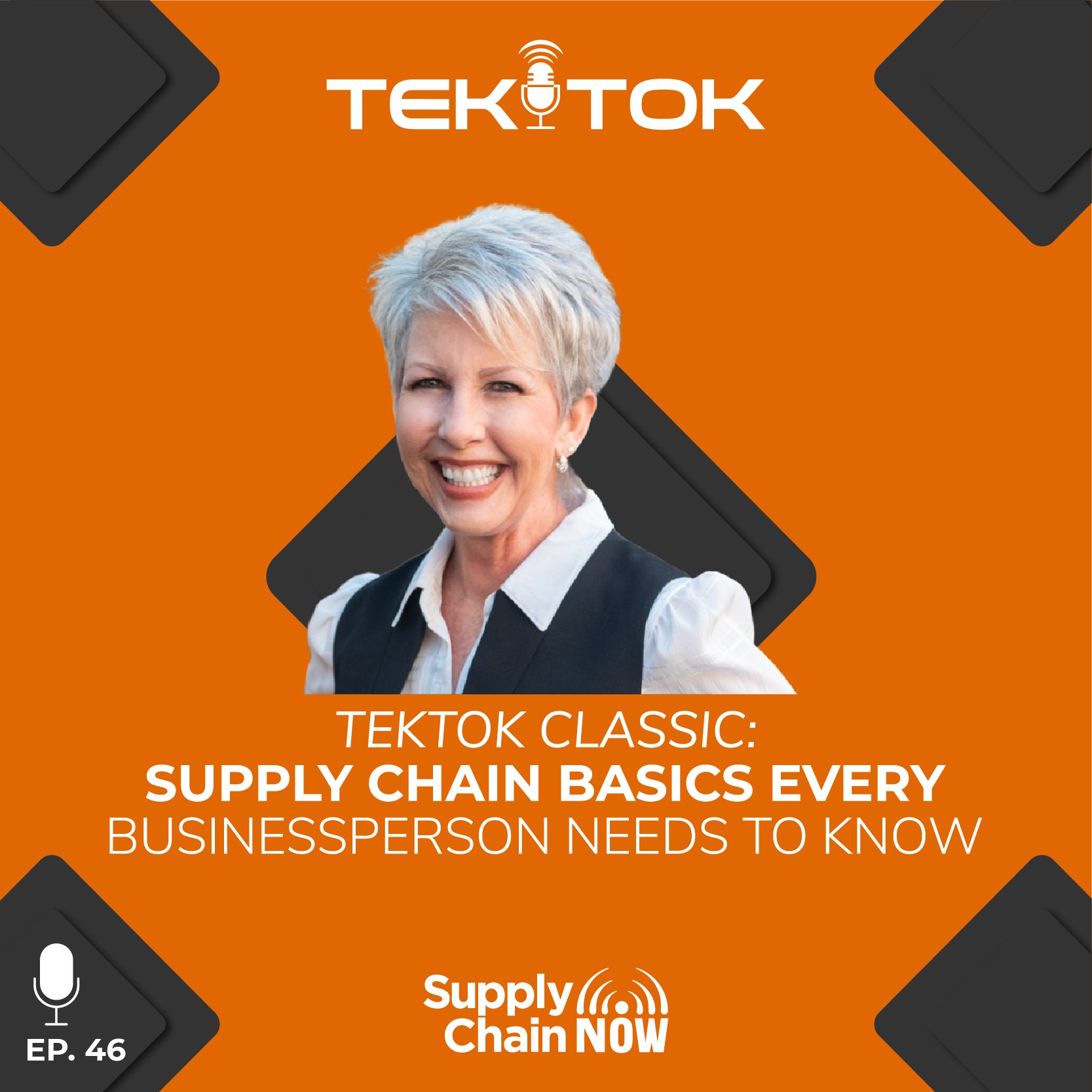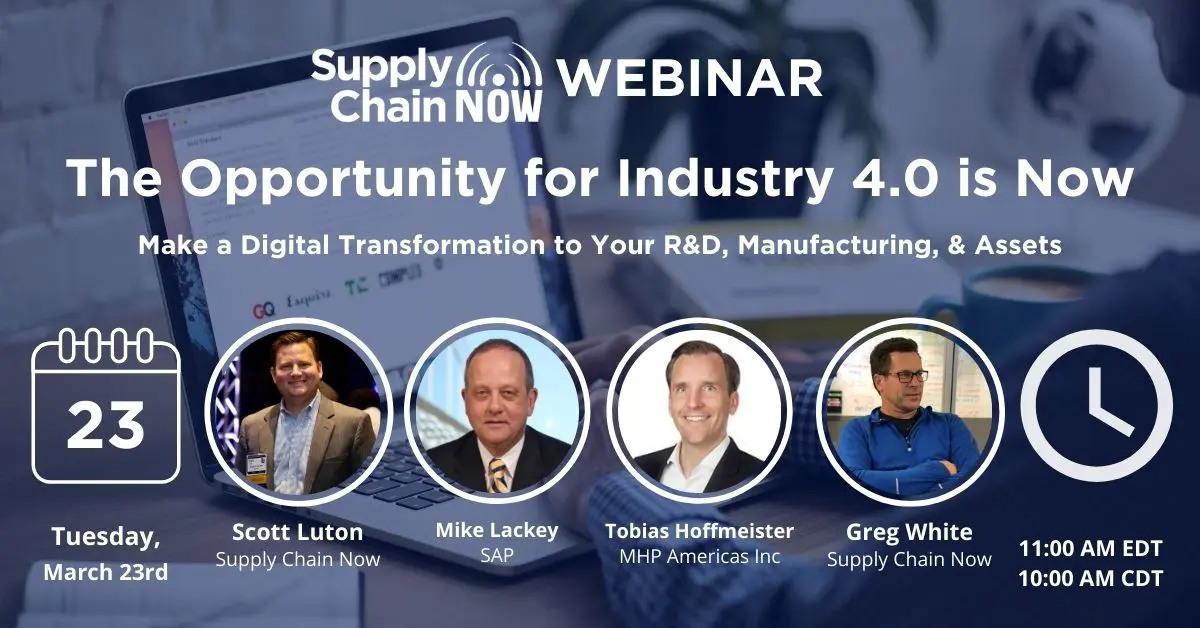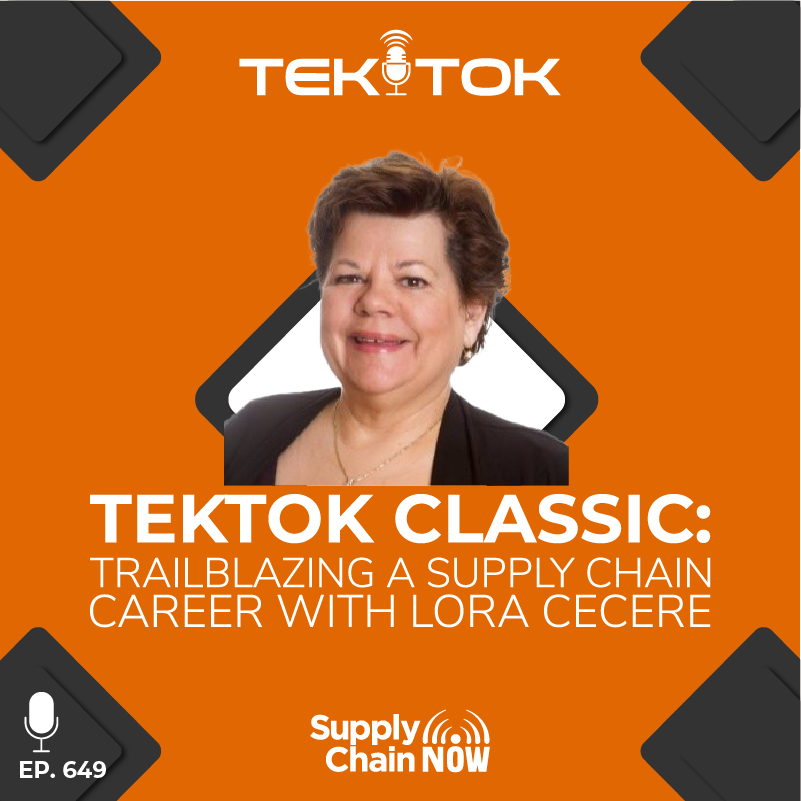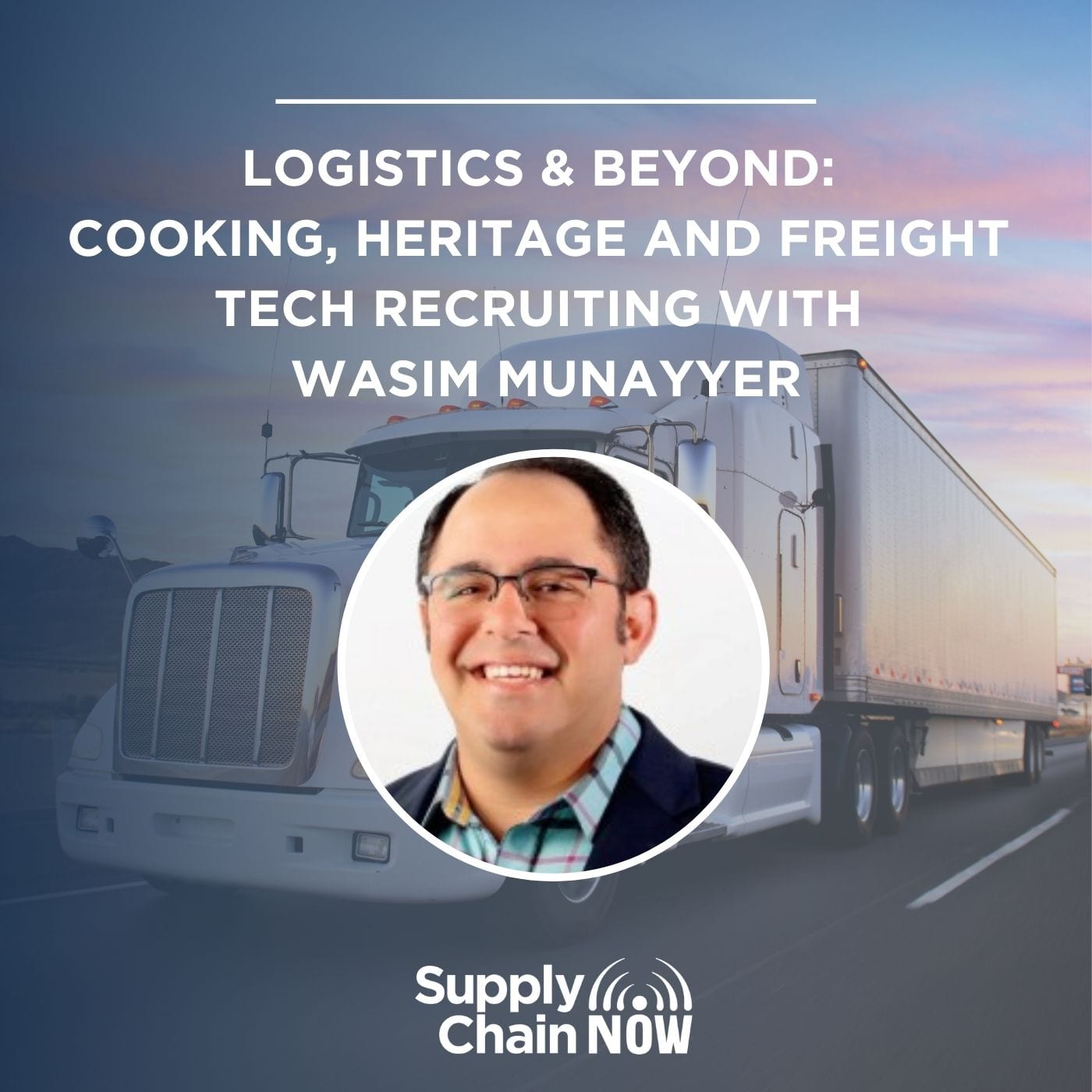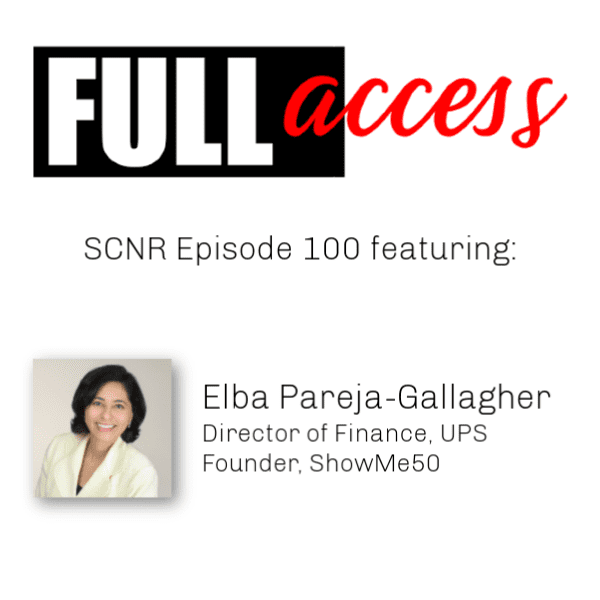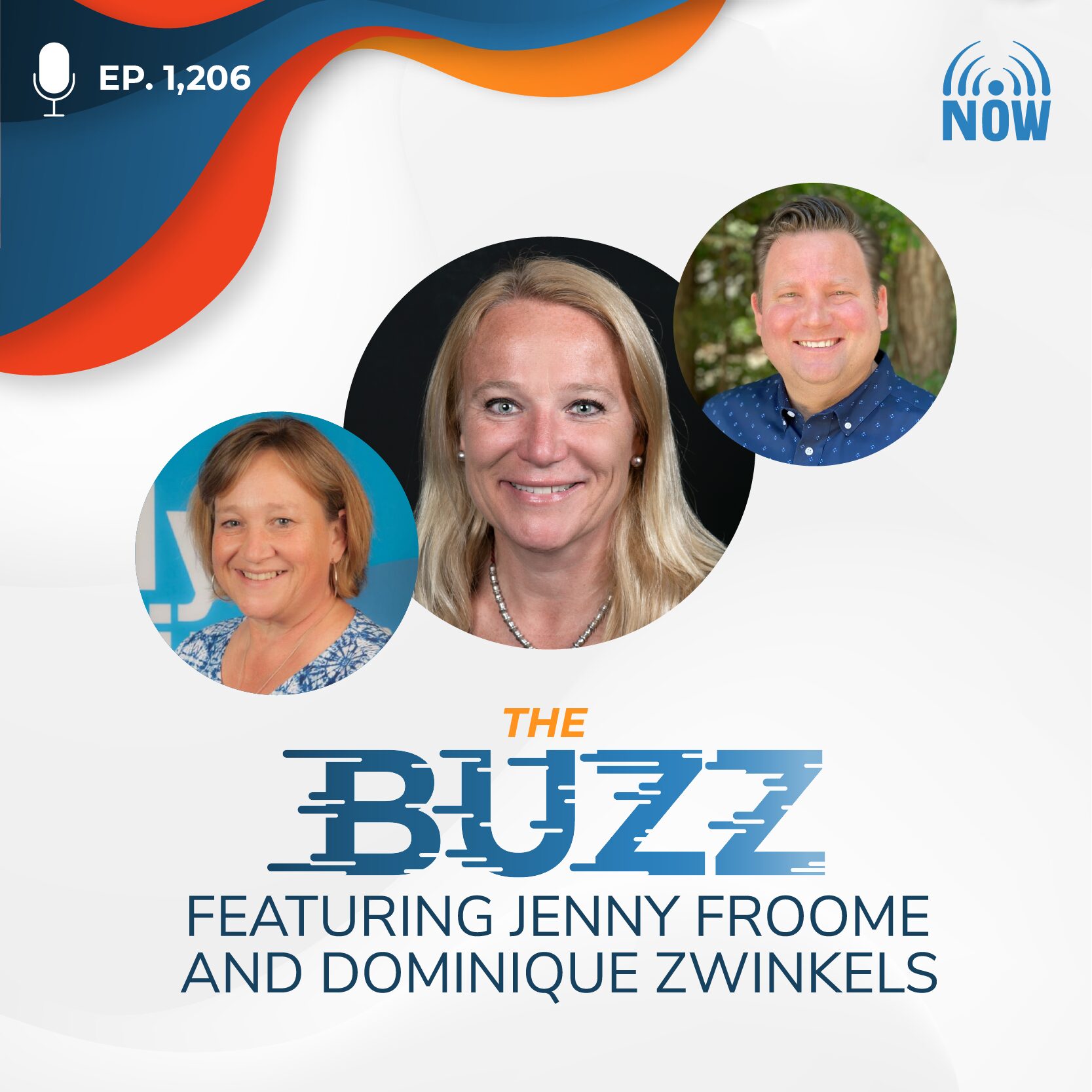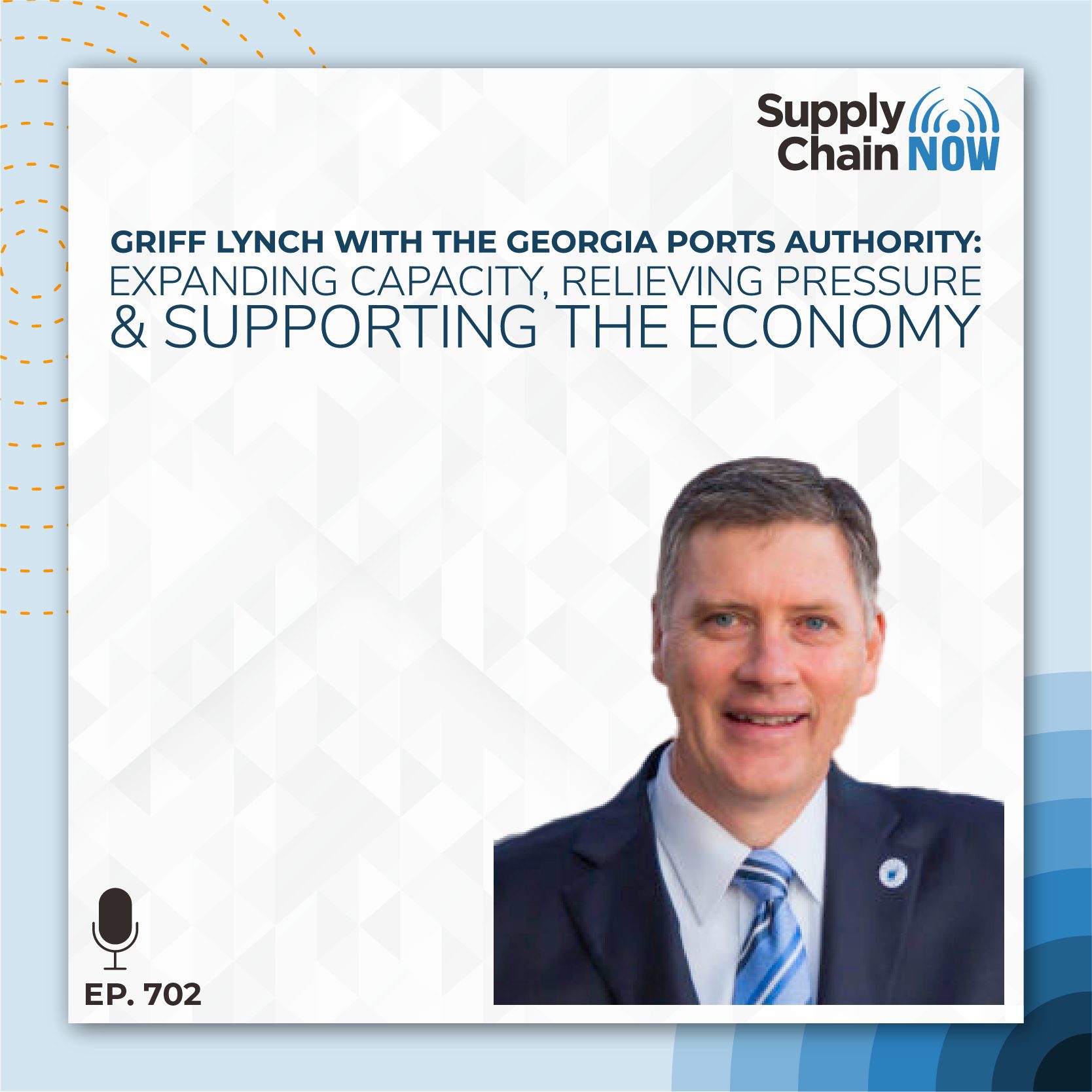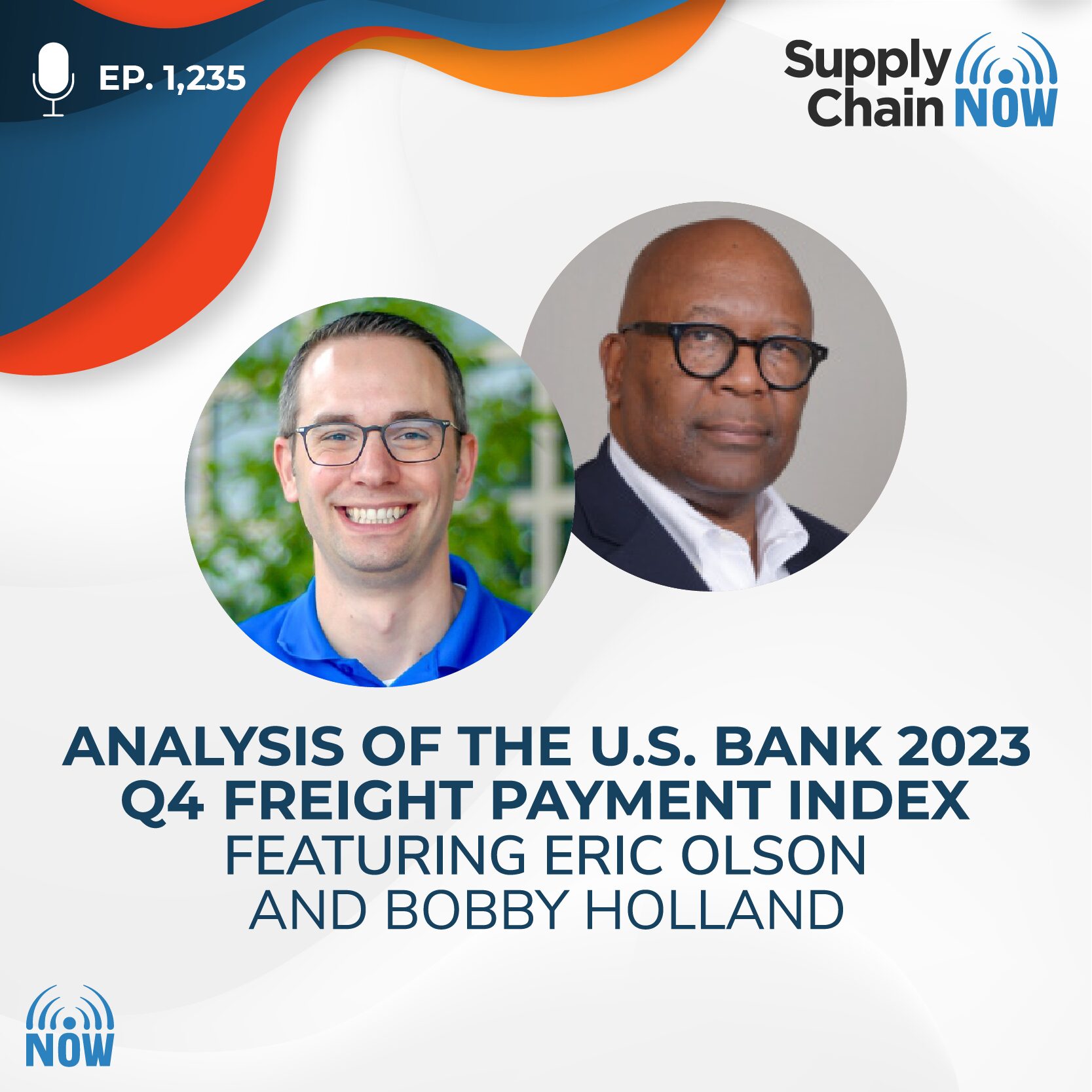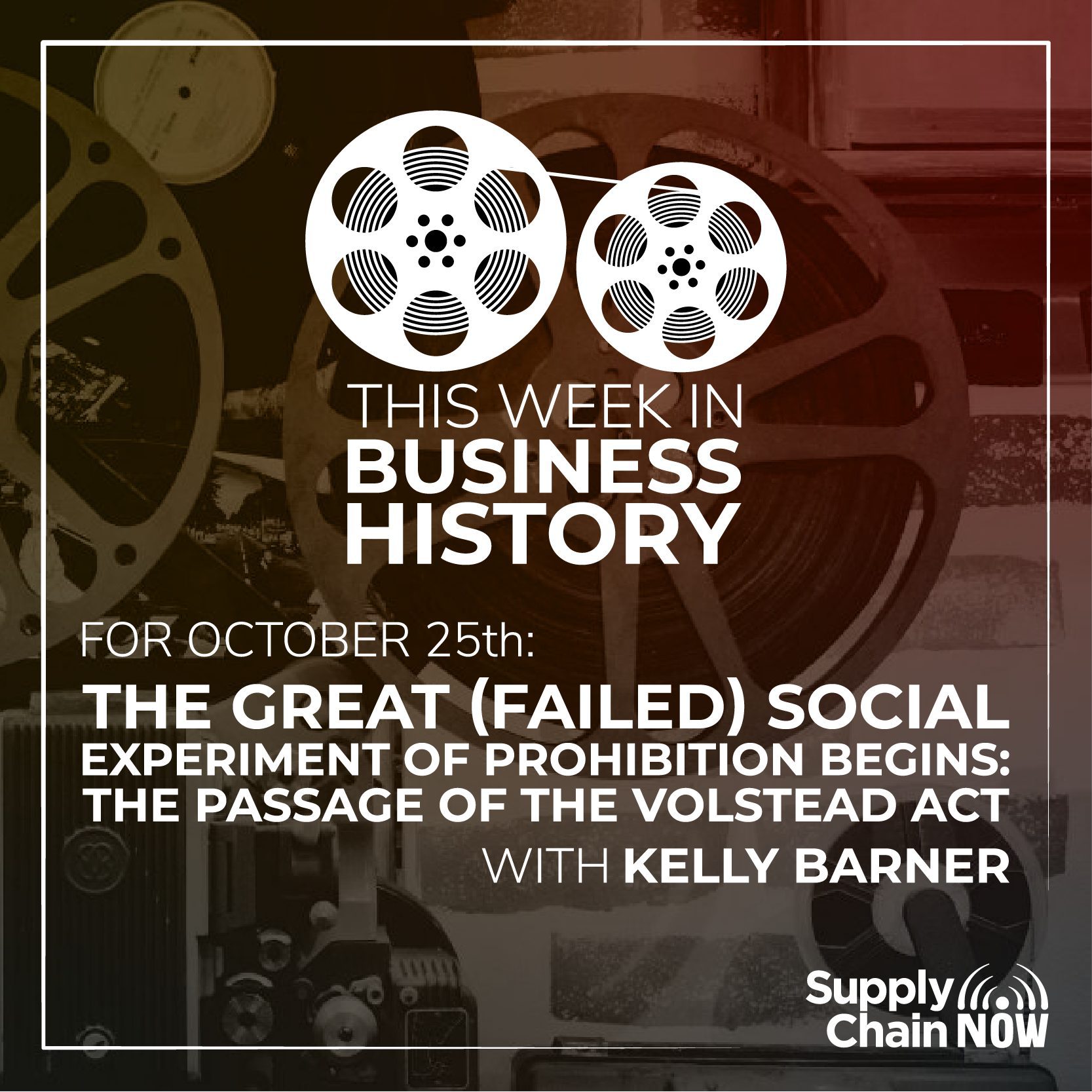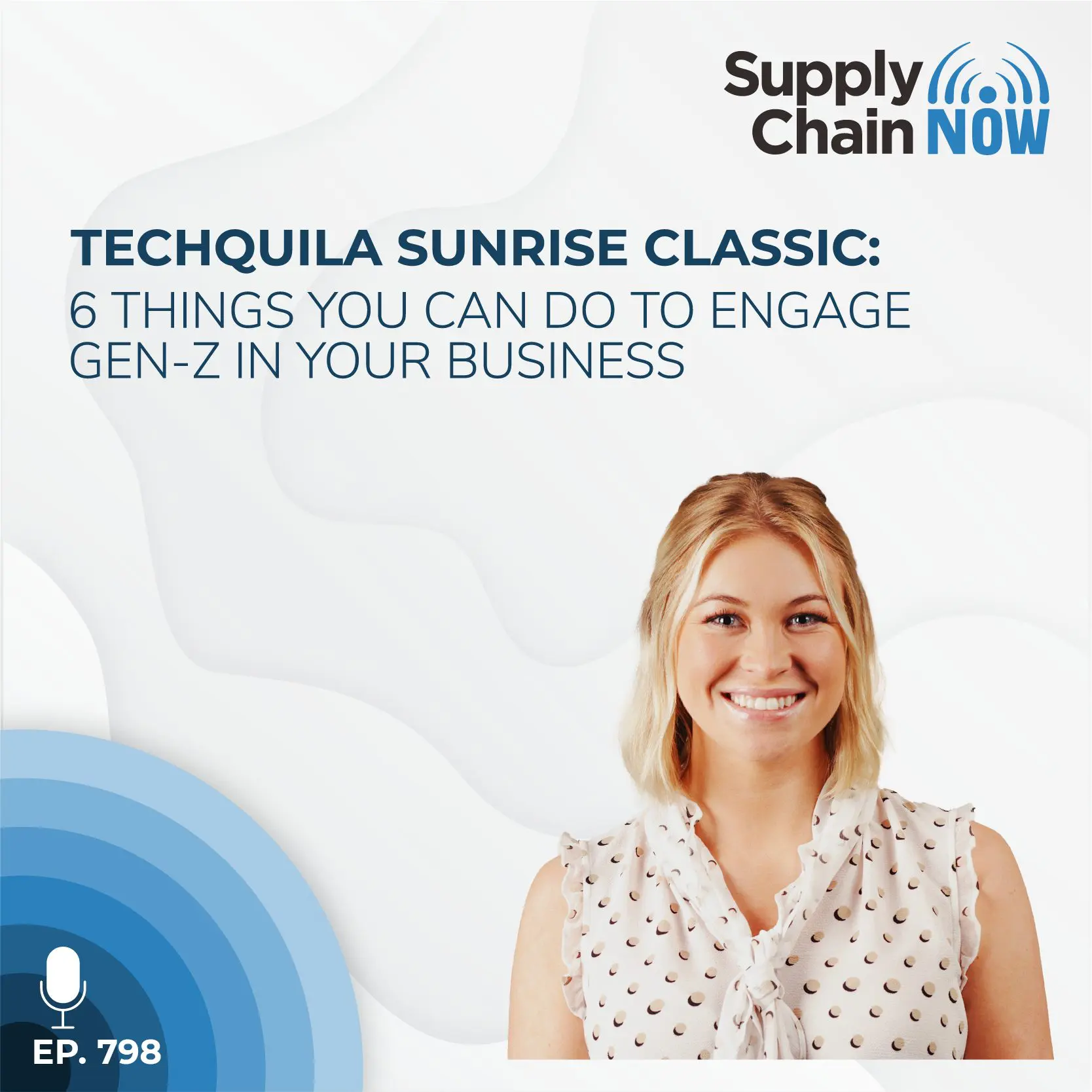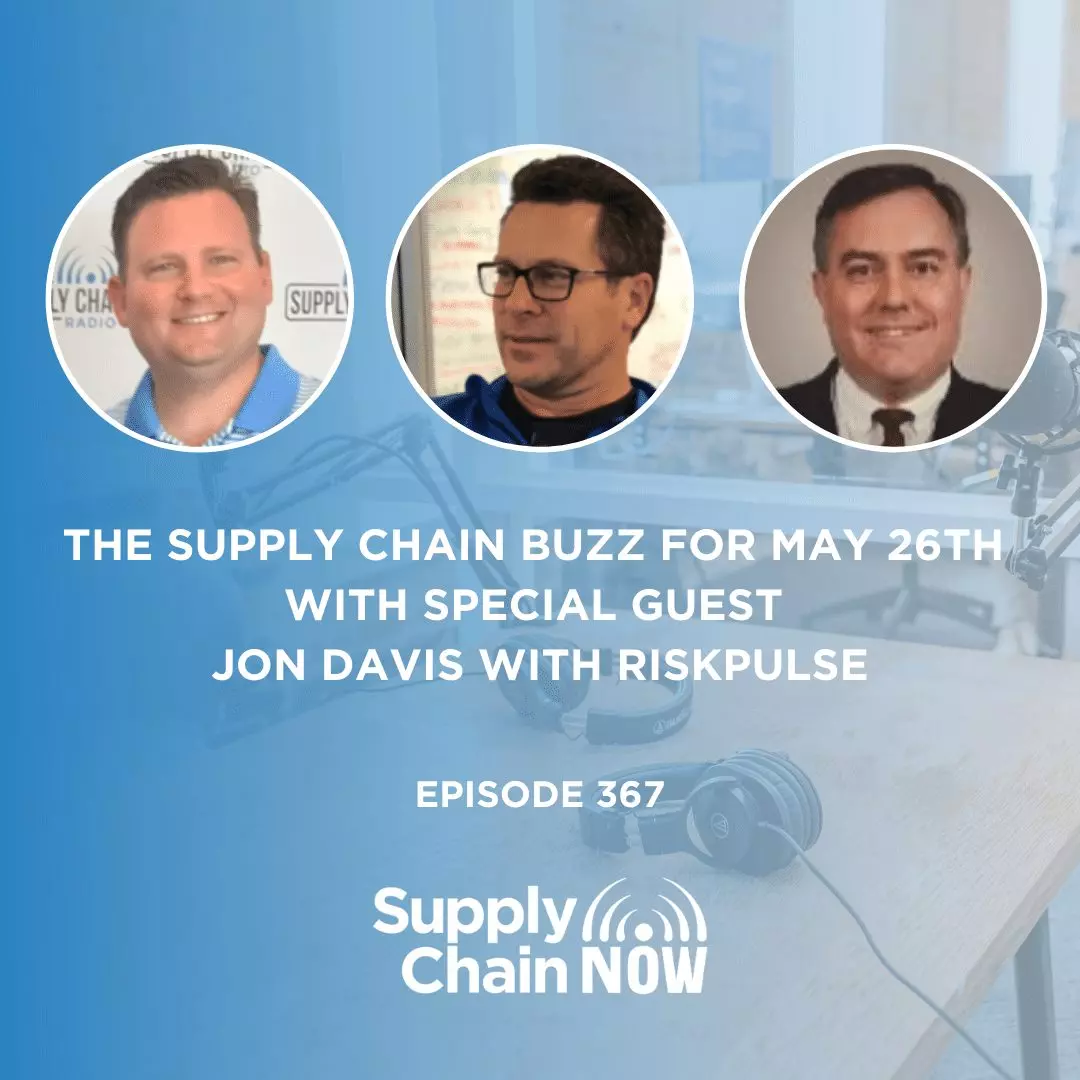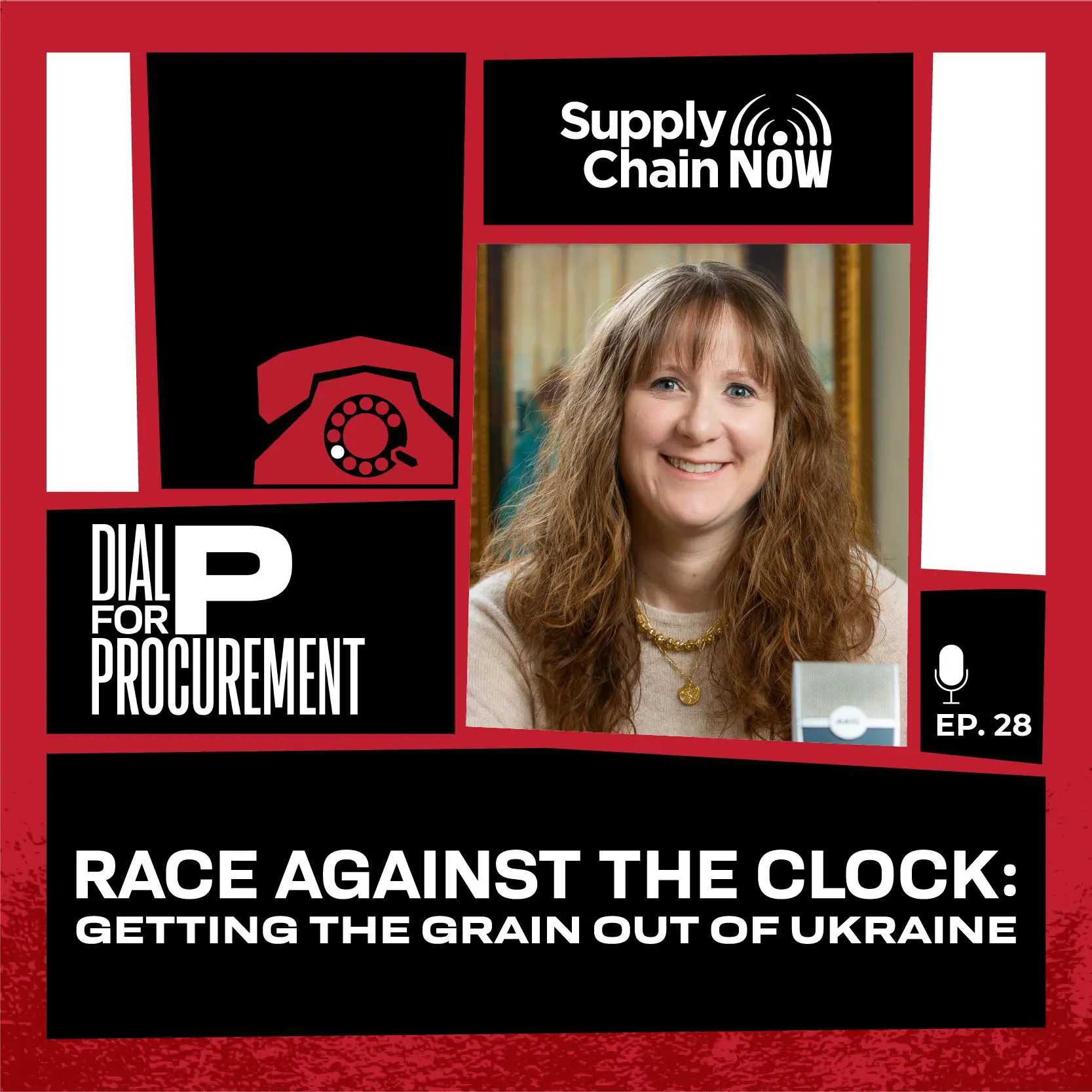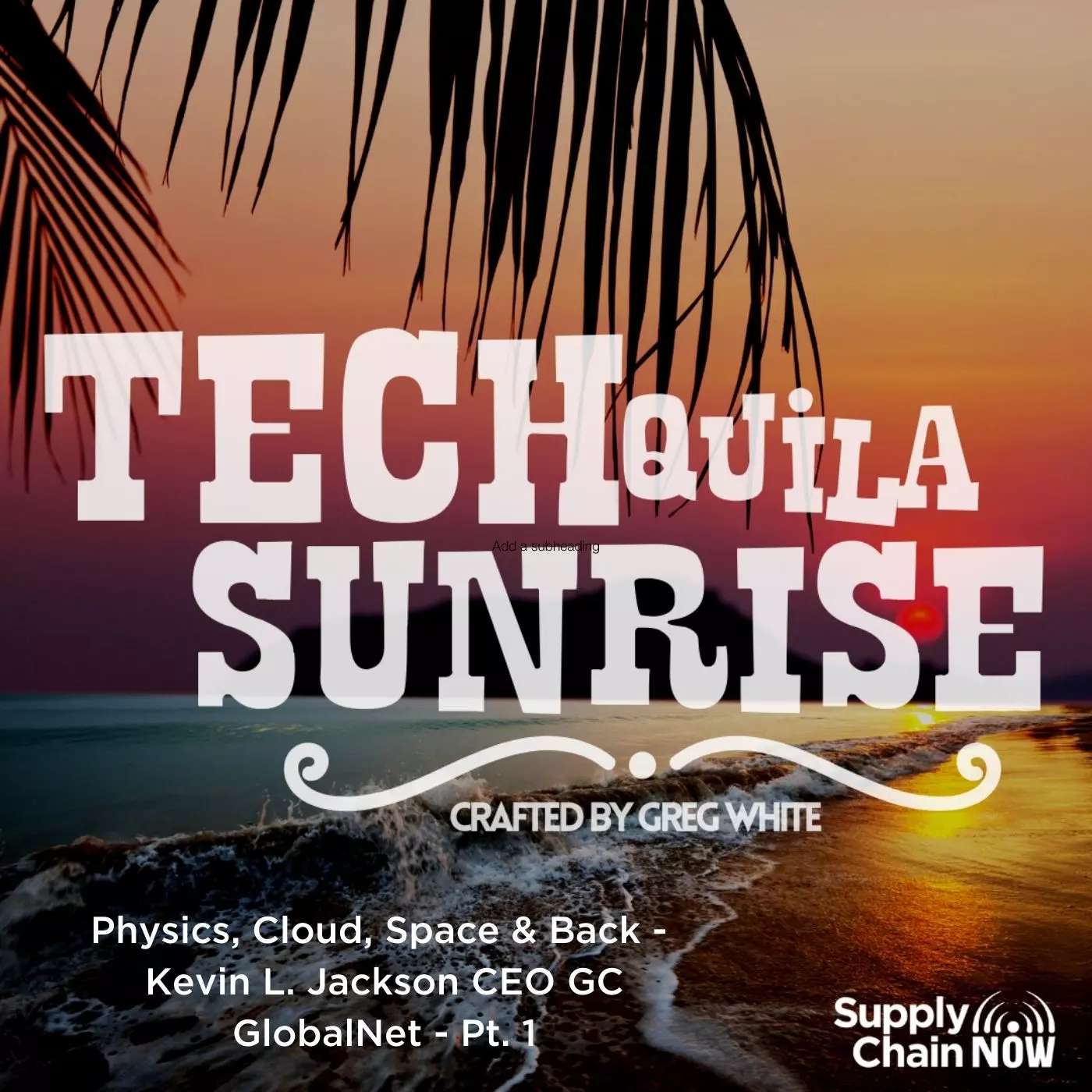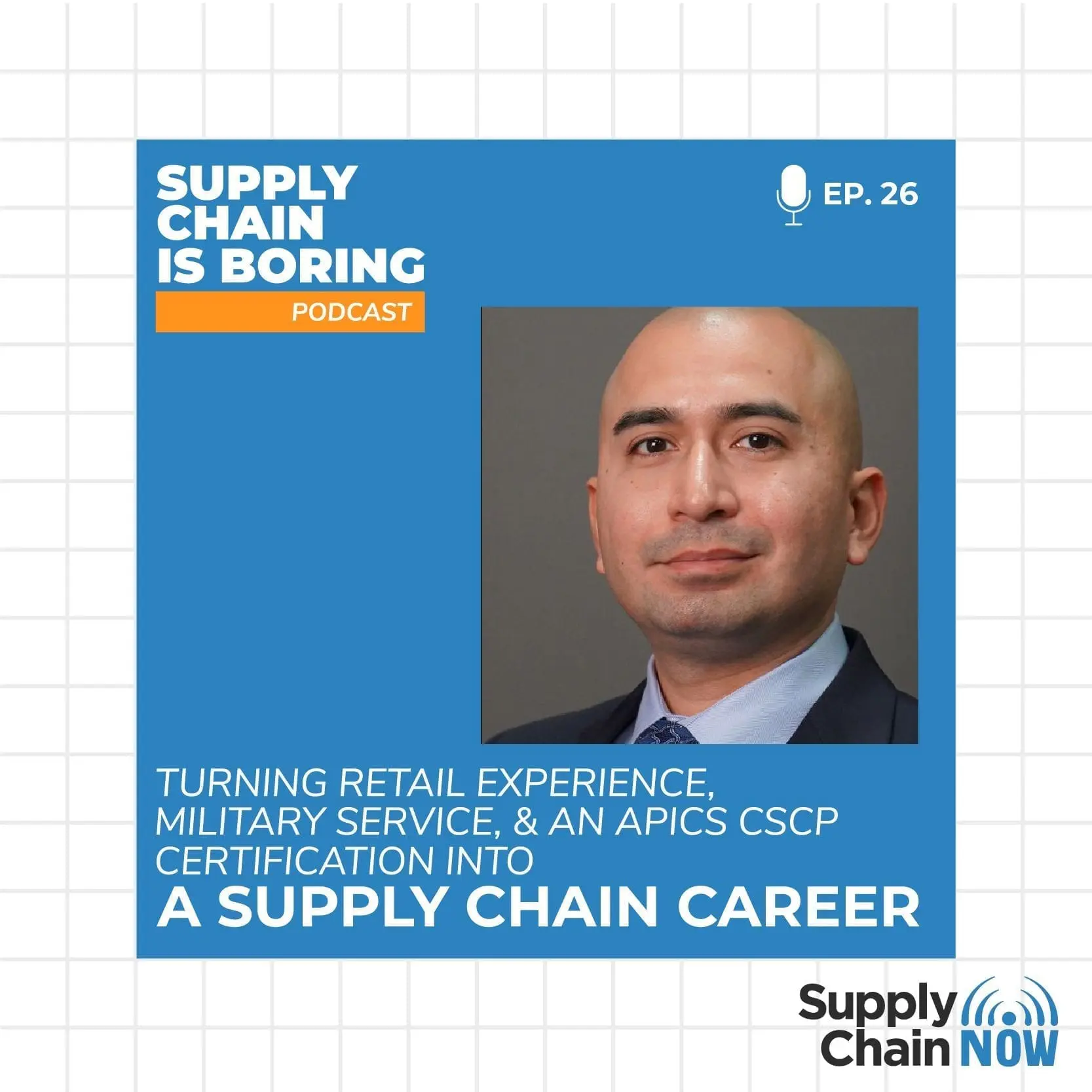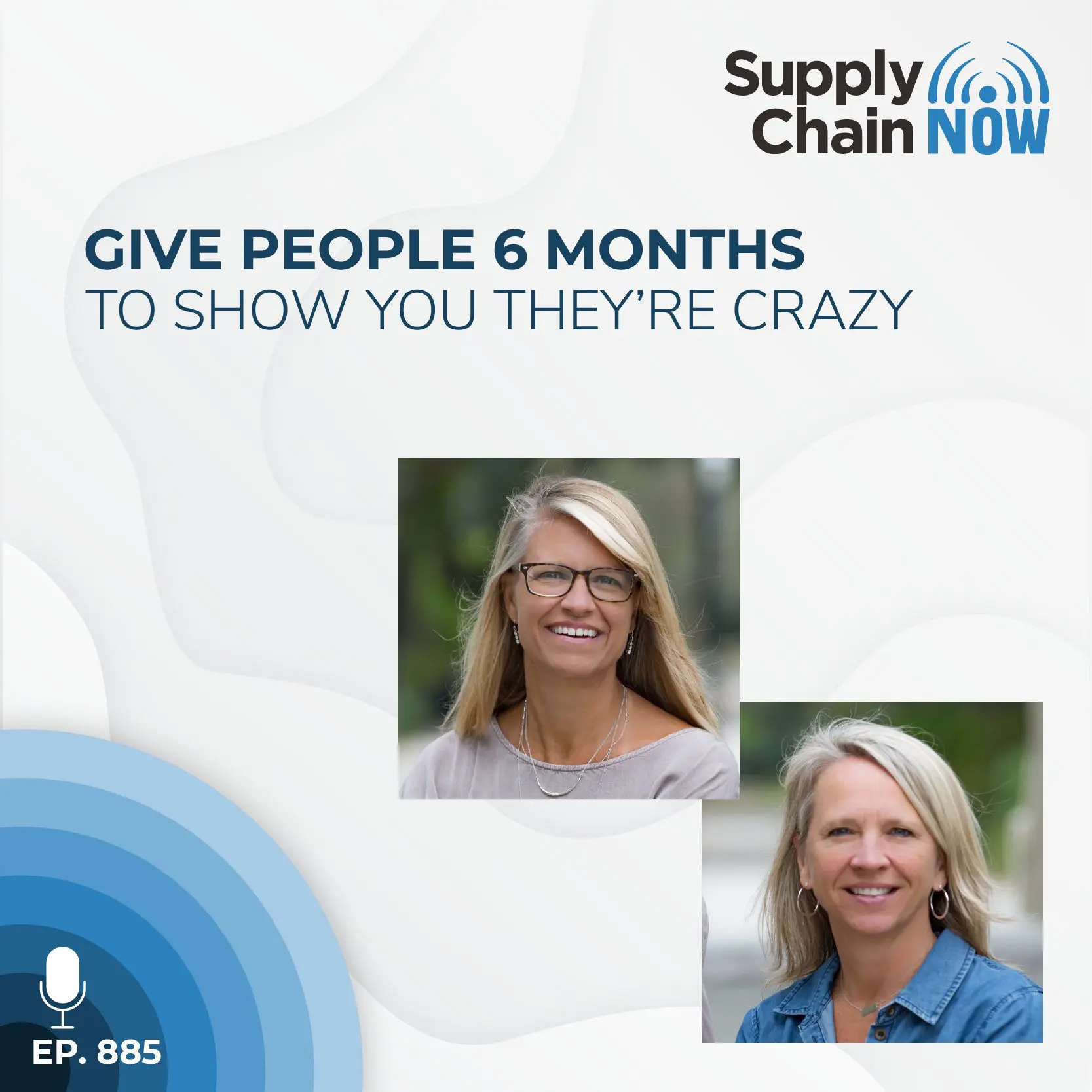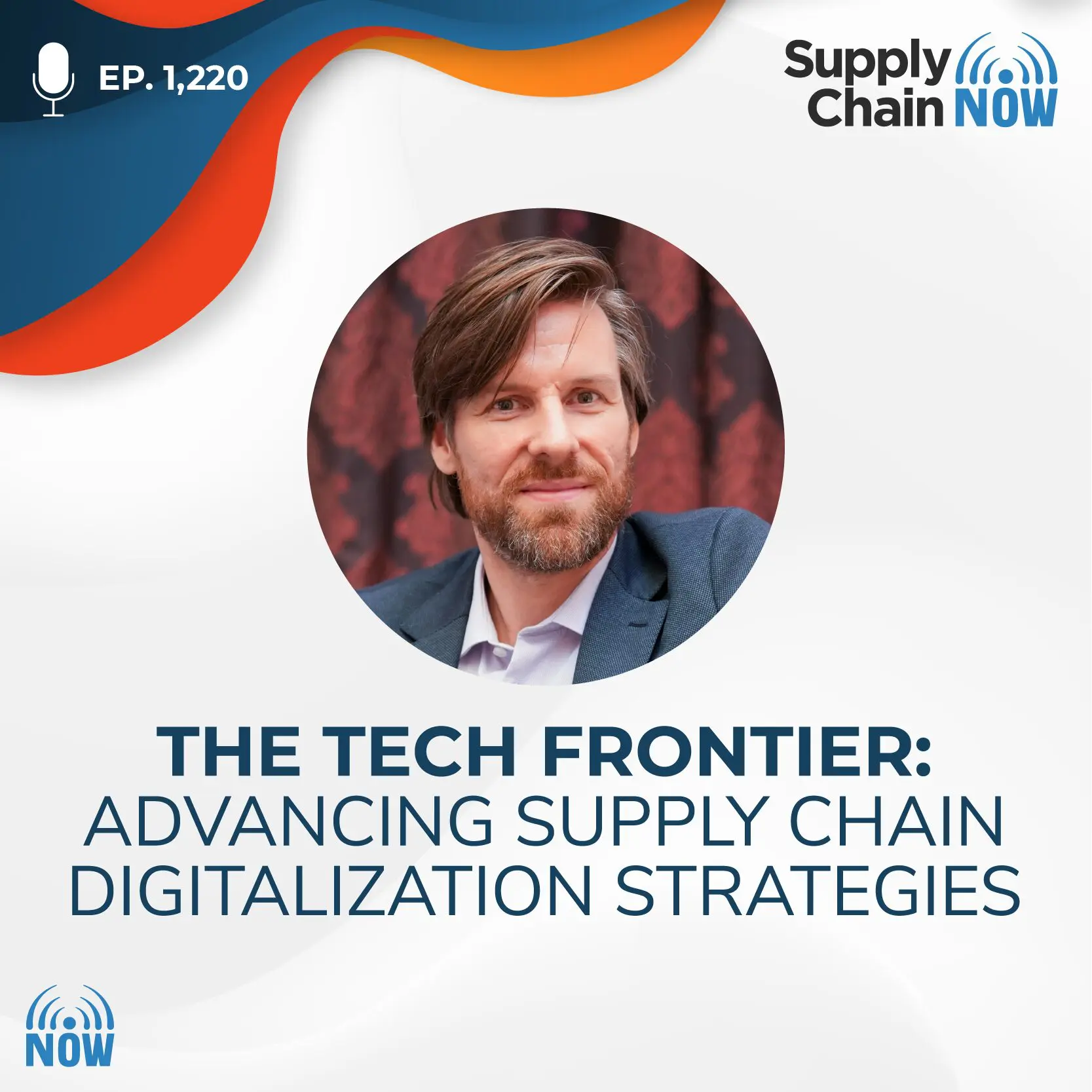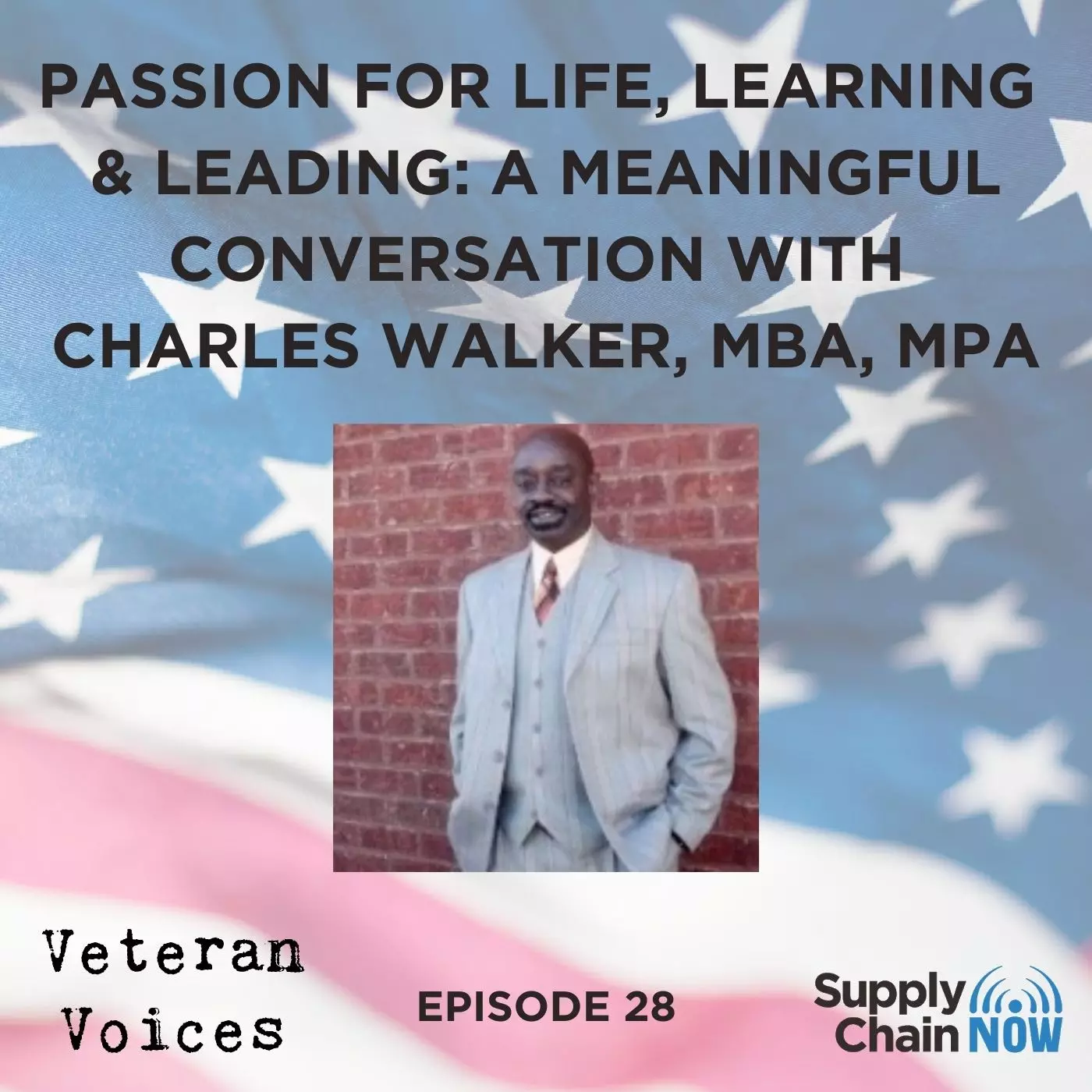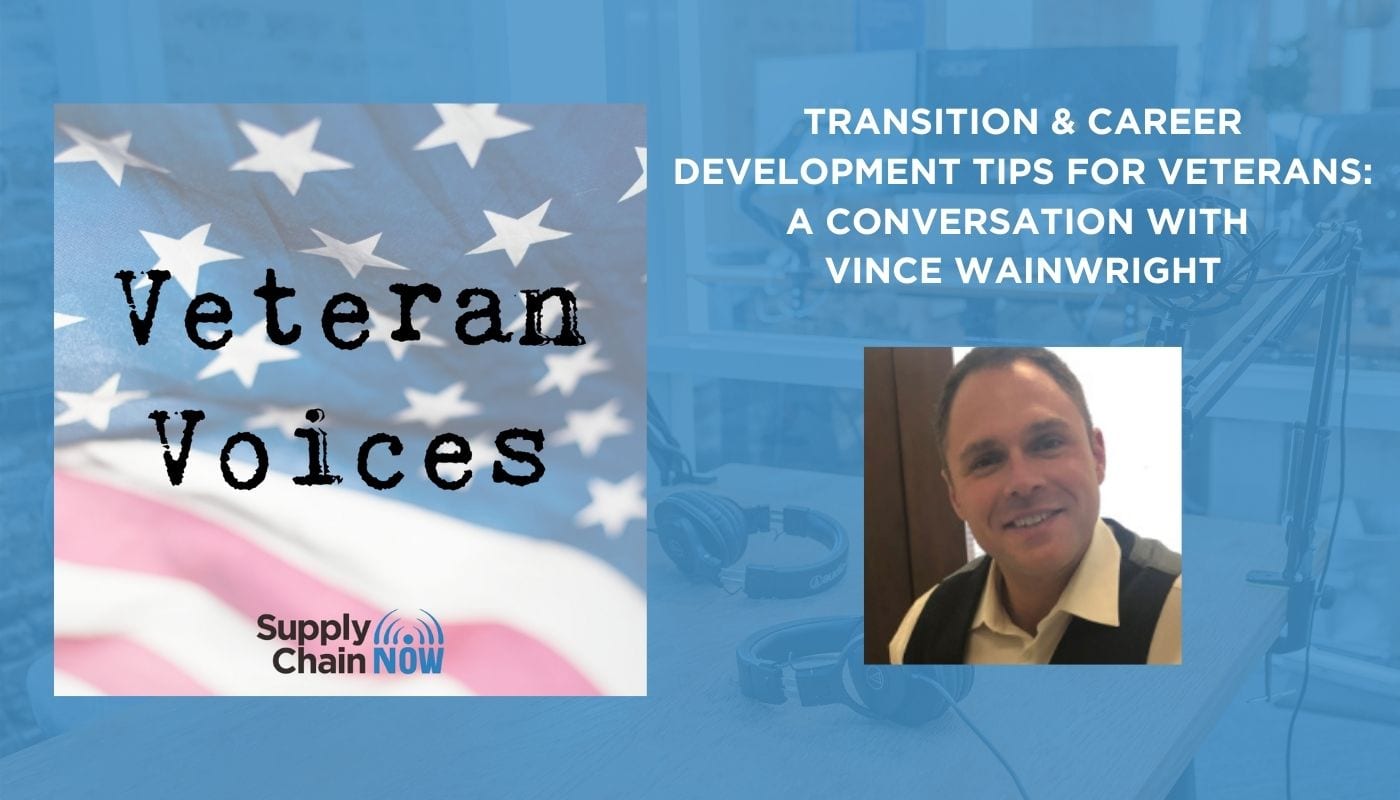
Episode Summary
“If you’re not going to show up every day with the uniform on ready to push the button or fight with a gun, you’re not going to make it in the civilian world. So whatever it is that you’re going to do, you have to show up, you have to throw that thing, put a smile on your face, or just be professional. And you have to take the orders. Cause no matter what, there’s always somebody that’s going to be giving you orders. Even if you own your own company.”
-Vince Wainwright, Founder of Scale Executive Search & Scale Search Group
In this episode of the newly re-launched Veteran Voices series, Scott welcomes Scale Executive Search Founder, Vince Wainwright, to the podcast.
Episode Transcript
Scott Luton (00:05):
Welcome to veteran voices, a podcast dedicated to giving a voice to those that have served in our country’s armed forces on this series, which is part of the supply chain. Now family of programming, we sit down with a wide variety of veterans and veteran advocates to gain their insights, perspective, and experiences. We’ll talk with many individuals about their challenging transition from active duty to the private sector, and we’ll discuss some of the most vital issues facing veterans today. Join us for this episode of veteran voices. Hey, good afternoon, Scott Luton with veteran voices. Welcome to today’s show. So on today’s show, we’re going to be talking with a veteran, a business leader, a serial entrepreneur, you name it. That’s doing big things in the talent acquisition space. So stay tuned for a great show. In the meantime, here’s a quick programming note. This program is part of the supply chain. Now family programming, fondness, and subscribe. Wherever you get your podcasts from. Oh, you got to do a search for veteran voices and subscribe. So you don’t miss a thing like this great conversation we’re going to have today with one Vince Wainwright founder at scale executive search Vince, how you doing
Vince Wainwright (01:28):
Well, Scott, thanks so much, Rob. And how are you today?
Scott Luton (01:30):
Doing fantastic. We were talking earlier about just how much of a rewarding experience this, this series has been, you know, meeting and learning the stories of my fellow veterans. And I think we’ve got a home run conversation with you teed up. So I’m looking for appreciate your time and looking forward to your perspective. Thank you. Alright, so Vince, for starters, we’re going to get to know each other a little better. We’re gonna get to know you a lot better. So tell us what you know, where where’d you grow up and you got to give us an anecdote or two about your upbringing,
Vince Wainwright (02:00):
A sporting long beach, born and raised in Redondo. Like a, like I like to say, uh, two amazing parents. Uh, they married for 25 years actually, uh, were divorced for 10 years and got remarried and Vegas, which I got to build it that way. Two years ago, just, uh, always had the entrepreneurial drive. We lived in Oregon for four years. During that four years, I ended up starting my own bike shop. So we turned my backyard into a bike store where I had the local kids come in. We are tuning up their bikes now not charging. I mean, you trade like cards and whatnot. I don’t think I ever recovered any money, but I just always want to have my, not necessarily to get my hands, but always wanted to have a way to, to bring people in, teach people things, and also learn about whatever craft, whether that’s sports, but fights together, not distance.
Scott Luton (02:50):
So what part of Oregon grants okay, is that
Vince Wainwright (02:55):
I don’t think anybody’s heard of it. You know, there’s a little town. My grandma lived there, know I’m third generation Italian. So the Italians came over in Pennsylvania. Grandma was one of the first females to go to Penn state for whatever reasons she’s settled and brand’s pass Oregon. She called my parents during the riots and said, look, you guys got to get out of there. We would live in, in palace Verde, which is a very safe place in Los Angeles. My dad pretty much looked at my mom and said, look, we’ve got to get the kids out of here because from, from our house, you could see the fires. Wow. So we packed up, made the 12 hour drive and a little Mitsubishi. And I had the time of my life within their building, treed forwards, you know, BMX scene and all that good stuff.
Scott Luton (03:36):
It sounds like outstanding childhood, but I’ve heard a lot about Oregon. I’ve been out there once I went out to a manufacturer that relied on a lot of the potatoes and other vegetables, that farming was real big in Oregon at the time. It probably still is. I imagine. All right. So now that you’ve painted a really neat visual of your, uh, of some of your childhood experiences, let’s talk about what made you join the military.
Vince Wainwright (04:05):
Oh, so, you know, that’s an interesting one because I was a kid, uh, you know, a lot of kids growing up, they used to get three checks on the board. So if you’re misbehaving one check, they get three. My dad got sick of being called every day at around one o’clock. So he said, Vince, he sat me on the teacher and said, you’re getting two checks. So what I’m getting is not, unfortunately didn’t have the academic strength or the basketball, didn’t have the fortitude and the wherewithal to sit down and hunker down the books. Now I do, I’m just about to finish up my degree and then I’ll play at SC for my masters. And I think there’s a strong chance that I’ll get in. Wow. I ended up learning how to learn. So to get back to your question, my dad used to take me to the air force cadets when I was a teenager.
Vince Wainwright (04:50):
And I remember going out there and getting screamed at, and in my view, I’m a football player. I’ve been playing football since cycle walk, right? So coach screaming at me. I love that stuff in Jackson, but there’s something about standing in line with 14 kids that I don’t know. I remember them not necessarily in shape or necessarily, um, very, let’s say competent if you will. I just want to make it not this, this isn’t for me. But then as you know, when you get into high school and your friends are going to st. Johns Hopkins and I’m kind of looking around and thinking, man, I feel like I have so much offer, but me and my 2.5 GPA, I’m going to have to go to a JC. And I was a quarterback, but I wasn’t a very talented part of back. Am I going to play quarterback at the GNC?
Vince Wainwright (05:32):
So the pieces started coming together. It’s one, you know, I always want to be a provider and I always want to take care of myself. Do I ever want to ask my parents for anything? So I ended up having to take my recruiter that found me in the gym, in my high school. He drove me home. My principal, you know, who’s this guy in this uniform. We pretty much sat him down. I was only 17 at the time. So they had to sign the papers. I said, look, you know, I’m not strong. Academically saw what happened was nine 11. I don’t really understand the different branches of the military. I mean, I need to know there was a list of an officer it’s naive. I just wanted to go and be surrounded by guys that cared about themselves, cared about the country and wanted to be in shape. Those, those were my three things like looking back a little embarrassing. I should definitely had some more academic endeavors, but that’s, that’s where I was at the time
Scott Luton (06:20):
Back as they always say, hindsight is 2020, I would argue that hindsight is more like 2010. We don’t know everything at the time. Right. And, and we don’t know. We don’t know. So clearly now you’re tackling academically. It sounds like you’re, you’re wrapping up your undergrad and looking at getting your master’s at USC. Huh?
Vince Wainwright (06:38):
Yeah. You know, it’s not, I don’t want to get off track too much, but the stuff that’s out there for bets. Cause if you’re again, not to throw myself under the bus, but I really want to be an example because I’m certainly a success case. I mean, you met my sister, my sister and I, you know, we’re not going to impress you with the sat, but we are an impressive with, you know, being personable, being honest and just work in our spaces off. So what I want to hone in on is these vets that get out and they make a mistake, which I didn’t go to a university of Phoenix, national number of no crime with us universities, but we have so much more to offer. And I know that from sitting in class and seeing the different demographics and being in the military, you meet screen different walks of life.
Vince Wainwright (07:21):
So we don’t have to, I mean, you can get out of enlisted bingo streets, Yale boot camp, and Notre Dame with, uh, I was supposed to be back in envy on the anniversary of burying my grandfather two years ago. But with COVID I didn’t get to do it. So there’s, I was with a warrior scholar project and they send me these kids. They sent me to Yale, Notre Dame and my team. I mean, there’s so many options out there for us, but we, but we just have to have the wherewithal to be able to take the deep breath and much like when we deal with the VA to, to find out those avenues where we get the best help.
Scott Luton (07:56):
Yeah. Well put, okay. So Vince and you referenced your sister. So we should say, give a shout out to Natalie, right? Who’s doing big things and real estate and the Vegas market, I believe so. Hello, Natalie. Thanks for connecting us with Vince. All right. So you talked about why you joined the military. Let’s talk more about your military career. So tell us about the basics, the branch, your role and what your official MOS or occupation.
Vince Wainwright (08:24):
Okay. So that’s another fun story is, you know, had to have, my parents signed me up, went through my whole senior year, which again was another great feeling. Cause then your teacher sat here going into the military. That’s when, of course my football coaches, knowing that I was going to the Navy, I didn’t even know about that YMCAs songs. They’re singing in the Navy talking about. So anyway, once I saw the video, I thought, all right, I’m going to get you guys back into the Navy because you’d go to the recruiting site and see Marines and the air force. And you have that the Navy. So I went into the Navy, September 30th of 2002, spent my October 2nd birthday in the military in bootcamp. You know, it’s 30 degrees out in Chicago. And then based on what you do is you go from there to your ACE school. It’s where you learn about your rate. I’m supposed to be an operations specialist for anyone that doesn’t know which most people want are not going to do an operation specialist. I’m doing a tactical communications. So when we’re in, when we’re in the golf, I’m making sure I’m putting the pirates in these little bays on my radar screen and CIC, which is the combat information center and reporting those contacts to either the tap latching officer or then the seat BCO the captain.
Scott Luton (09:40):
That’s fascinating. I think we’ve all seen movies as folks know Alice and air force. I was a lowly data analyst and air force, but we’ve all seen these movies from top gun to plenty of others where you see the, the, the CNC and you see the operator is tracking different things on the, um, you know, that big radar screen and moving stuff around. That was you, man. That’s a, that’s a perfect visual. And I bet I can only imagine how intense and how much pressure at certain times and how challenging that role can be. And because, because of the nature of how critical that role is to the vessels and fleets, right,
Vince Wainwright (10:17):
Right. We had a blast in the unit like I’ve already said I was ADB. So you can imagine my cat rear Admiral, Jesse Wilson, who’s now retired. You know, I’m an entrepreneur. I also threw a show house of blues just opened. I plan an entire new set of Wells on the climate and that gentlemen, Jesse Wilson rear Admiral, Jesse Wilson, he went to my show witness. Now, did you go because I was a little outlandish and he’s wondering, is this guy gonna leave a bad name on my shirt? That would be the responsible thing to do. I’m telling you, he showed up. He was the quintessential just buttoned up the most. I think about the guy every day. I think about him and that’s, Simon’s not, is now an opposite. I just had this, this amazing nucleus of leaders that some of the person might be. That was kind of very, very much scattered and enabled me to sit and insights, create that environment. Speed, that, that information to the captain, to my, uh, my superiors,
Scott Luton (11:21):
We talked a little bit about what you did, being an ABA specialist, you know, tactical communications, we painted a great visual. And you’ve mentioned some of the folks that both you worked for. And it sounds like you worked with that really made an impact. Let’s talk a little bit more about that because I don’t know about you, but in my experience, the people I were as proud and as much as you enjoy serving your country, your colleagues in uniform, really, I mean, that is, is some of the secret sauce in life. So tell us more about somebody special people you worked with and worked for what? So again,
Vince Wainwright (11:54):
We’re adding more Wilson, just, it just get a, be human be you. We got two seats CEO’s fired. You know, one was having relationships with someone on board. When you are one person, mind, 300 person ship. We get to see every single walk of life and my birthday. And for instance, where I slept at a top rack rats or three rats. So I chose the top rack. Is that a little more until you had to touch the bulkhead there? The head room, right? This was the bottom of my rack right here was how much? Cause I remember, and I was so comfortable seeing Rocky to sleep, but I just ripped again when I got out and I was going to have kids, how am I going to tell them that my, my rap was this small? How could anybody understand? Because
Scott Luton (12:45):
So to our listeners that aren’t seeing your arms signal there. That is a, what about a two feet of space? You’ve saved them two and a half feet.
Vince Wainwright (12:53):
Yeah. So someone of that size say a size 16 shoe is about how much that’s probably very active. I love that.
Scott Luton (13:02):
Alright, so, so Vince can keep driving. I love the, again for me, it’s about visuals and a lot of folks may not know a lot of veterans may not know. I mean, I told you pretty show how little I knew about the Navy. They might not just connect two and two and, and understand they’re squeezing a bunch of sailors into a very confined and limited space. And so trying to accommodate for everybody’s personal space and their sleeping space. I mean, it is really tight. Quarters
Vince Wainwright (13:28):
Is really exciting, you know, in my birthdate birthing and think of birthing. It’s like your, your campsite for a different area. Let’s say if you guys are going camping, right, you’re going to have certain demographics and certain people that are responsible for different parts of the ship or the campsites sleep in certain areas. If that makes sense. So the people that we slept with were called Boltzmann mates. Now both of the mates are the roughest toughest guys that you can imagine. I mean, these guys, they will give you the shirt off their back, of course. But if for some reason, and there’s some, there’s some type of disrespect going on and you’re not listening when you have to be listening. A balsamic will literally back in you. I mean, it’s not even a, it’s not a, it’s not a bigger speech. He will get back here.
Vince Wainwright (14:12):
Uh, they will throw you into a, a rack and to humble them because what they are incredibly important to ship these guys, they’re not only the guys are eating, right. Sounds kind of, uh, not as severe, but when you’re painting this ship about 150 degree weather, you’re going to get a little peed off and something’s not going right. And then also when kilos are landing, when the helicopters landing on those are the Postmates that are pretty much 24 hours a day, six days a week landing, the helicopter is guiding them in shooting them off, taking all the ammo on board, taking the food onboard. I mean, they’re involved in anything. So what I’m getting at is one of my best friends were actually get to go visit a couple of weeks. We’re going to do a 10 mile rock, what rock walk and I’m in Chicago because he’s part of the BMW.
Vince Wainwright (14:57):
There he’s a cop. I mean, just rough on amazing dude, when, you know, roughly has to be amazing at 24 hours a day. So I met him in the Berlin and it’s two different walks of life. And you’ve got a person that gets to be in an air conditioned space, CIC, the combat information center. And then you’ve got a dye that’s hanging over the side, 120 degrees in the golf or a address is also a red driver, which is original whole inflatable boat. And these are the guys that jumped off of our ship into this little boat with like a sticky Cal on front, you know, five inch bullets and going to these pirate ships and they’re arrested bringing them on board. And the friend that I get to visit me Brazel, he was the actual driver, or they have that little boat. So the fact that I get to go see my family a couple of weeks, just lights my life up. And I met him on board USA.
Scott Luton (15:48):
You’re reading my mind because where I was going next is what type of ship did you serve? And what’s the name of it?
Vince Wainwright (15:54):
A USS ticket. So it was two ships. I did the USS John Paul Jones, which they had just gotten back from deployment. They were the key ship in the Gulf during September 11th. I was not a part of that. Unfortunately I would love to event. They got back. And then I assume that posts in, what was it? Late 2000 and then four on 2002, we did what was called a sea swap. And they took, which is ridiculous. I don’t know how they did this. And they pulled it off. They took 300 men and a couple of women that we used to take us back to the first ship, eight Colette. So they had two women on these planes from lax, excuse me, from San Diego out to Dubai, which is the United Arab Emirates and Saudi Arabia. So they flew us up cause we didn’t see SWAT. So that whole chain of command from us tickets were over and took over John John’s, John Paul Jones. And we took over the U S in seconds. And the golf we spend, like what an outstanding experience
Scott Luton (16:54):
Note about that note about the USS Higgins being the first coed vessel. You mentioned the sea swaps. And you also mentioned pre-show about some of your deployments. Talk about some of your deployments while you serve
Vince Wainwright (17:04):
Incredible. I got to do three of them in five years, which I extended. So typically you do a four year, four year term, right? Or four year tour in the military. I just sent it for one year because in, you know, this is your chain of command is every, I mean, you either wake up and you’re pumped up and you, you got to PT in the morning, which is PT is physical training, which I led on my ship along with, or as the enlisted member with the officers. And then you can go and you can be totally bummed out. So those first two deployments are not my favorite, right? But that’s really had this amazing channel man with a master chief Magneto who is now works in the U S and I can’t, I’m jealous of them, but they need to work with this individual because the guy is phenomenal. I mean, he’s a quintessential Navy, massive chief is all around good guy. So anyway, I said, I’m extended for me. I’m on this third deployment. So I only did West so free West. So what that means is West Pacific. So a lot of times involve foreign at that. We got to go to Fiji. We did Canada, Australia, UAE, Maureen, of course, uh, going India, jealous a lot of fun. Where’d you get to go?
Scott Luton (18:19):
I just had one small, a 45 day TDY to Algebar air base in Kuwait.
Vince Wainwright (18:26):
Oh, that’s interesting.
Scott Luton (18:29):
That grew up in small town, South Carolina. It was, it was an eye opener and really enjoyed it. And a special thing for me, Vince, uh, when we were, when I was there, this was October, this is late September, October and early November, 2001. Right. And you were referencing some of the, some of the things that were taking place in that time when I was there, we started the air campaign again, uh, in Afghanistan. And of course that time, the American community, for me, at least we wanted retribution for what took place right in New York. And they were so much energy on there. Forget it till the day I die. The energy as the planes were taking off. Um, I’m not sure what time it was. 11, 12 at night. And, and you could see it and everyone knew what was taking place. And the amount of emotion was so palpable. And, uh, I mean the skins that the hair on the back of my neck standing up right this second, you know, and that was a long time ago. And you know, no one likes to be vengeful, but that was such a kick in the gut, as we all know. Um, and so it was a proud moment to serve. And it really was one of the highlights of, of my tenure. So events,
Vince Wainwright (19:39):
That’s a great story. That’s an amazing story,
Scott Luton (19:44):
Very real at the time. Um, so I want to talk about some of the upcoming five years and all the deployments, three deployments, but all the places you went and, and be serving as such a critical role in the Navy. When you look back at some of your accomplishments, what are those that you’re going to be telling your family about and your friends about until the day you die?
Vince Wainwright (20:04):
Oh man, there’s, there’s so many, there’s so many different ins instances. Um, you know, my, my six year old, he wants to be a Navy seal, which I promise you, it has nothing to do with me. Of course I am, uh, somewhat military. My wife accuses me all the time because when you wake up in the morning, it’s not necessarily, he said, so I’m not making him make his bad, but you know, do those pushups and sit ups. Tell me what you’re thankful for. Let’s get, just get a good cycle going. So, you know, it varies so much in what you asked me a couple of days ago is veterans park is right down the road from me in Redondo beach because my office is Redondo beach. My house is we’re down to the beach, less than a mile away, keep everything really close, which I, which I learned from the military because things haywire, right?
Vince Wainwright (20:48):
You have to keep your family, your friends, and even your dry, cleaner, everything nice and close that way. Everything’s ready for you. So you can perform, right. So he was asking me at veterans park, you said you didn’t die in the military. I thought, what a great question. Well, we don’t all die hugs. And if I did die, then I would have been grateful to die, but I’m so glad that I didn’t die because now I have you here. So to answer your question, when those, those things, you know, really just being a connector because you know, I’m not a Navy seal. I’m a, I’m not the guy that wants to make fun of the guy that’s in the Marines, the air force. I never had any of that. So I love comradery, I guess, just really being expected, being the guy. That’s the guy that’s kind of on the fringes.
Vince Wainwright (21:34):
Like I’m not diehard wiper Navy guy, but then again, of course I would never want to bad mouth the Navy. So to answer your question, I loved, and that’s also why I think I’m an executive recruiter because I love to be that middle man that would a CEO or a hiring manager comes to me and says, Hey, look, we can’t find the son of a gun. How are you going to find it? And I don’t know how I do know how I do it, but I can do it in record time. And the reason is is that I, for whatever reason, I’m on, I’m able to understand people’s needs, whether you’re in the military or in the civilian sector and mesh the two with the other appreciating body. So you’re the ideal client or the ideal when you’re in CIC and things are going haywire, which they do. I’m able, I was always the guy who was able to kind of conflicts and make people laugh at a lot of my expensive parts, which that’s that’s against.
Scott Luton (22:24):
I picked that up and you know, those are blessed. Are those people, I mean, there is part, peacemaker is part connector, as you were saying, it’s part, you know, facilitation is part, keeping things calm, even in the, in the craziest of times. I mean, the people that with your skillsets are such a huge resource in the military and in the, in the private sector for that matter. So I can, I can see you in that role. I can really see you be part of the glue, pulling that ship crew together. All right. So now Vince, we want to talk about your transition and get, and hear your story there as well as pick your brain on what may be some, uh, any currently active duty service members that may be listening. This are picking up tips or folks that have already transitioned, and maybe they’re there trying to find new resources or new way of looking at things. So let’s talk about your transition. You transitioned in 2005. Is that right?
Vince Wainwright (23:19):
Seven, seven. I’m sorry. Yeah, I’m sorry. I, you know what I gave you the wrong date too. I think I told you 2000, so 2002 to 2007.
Scott Luton (23:27):
Okay. So that was, most folks might understand that that in 2007, you know, 13 years ago, there wasn’t nearly as many resources or there are now. And what I would argue, just my opinion, Vince, is that while now there’s been a lot more emphasis around hiring, not only veterans, but also their spouses, because spouses need to succeed too 13 years ago that wasn’t nearly as front and center. So Vince, tell us your transition story.
Vince Wainwright (23:57):
Uh, what, so what I did is I got, I flew out of the Gulf. Um, another interesting story. Uh, so U S tigons I, I had 45 days of leave on the book. We were in Saudi Arabia and it was my time to go. And I decided that, all right, guys, so how am I going to get home? And there was credits. So I went to the lion, the lion is a Yulman. So they’re the app. That’s like me going to HR. Exactly what it is. It’s like, UNH, it’s my last day. Um, don’t have a car because you guys bust me in. Can I get a taxi back? Like, no, you can either walk home or figure out your flight. So as the military, thank you. So what I did is I just took myself to the air force base. I said, ah, here’s my mortars. You know, cause orders are how you get from spot to spot. And I said, I’m on USS Higgins. You can build a ship, uh, finally home. So they flew me home a 12 hour flight on an air force, which they had just had the shallow depths. So there’s no seats. I was laying on a deck with a blanket on me. Cause it is hold up there. I mean, it’s like they open up a window and I was like negative 30, but I’m thinking I’m going home. Sorry.
Scott Luton (25:06):
That was like space say, right? Yeah.
Vince Wainwright (25:10):
So the ship was not happy because for some reason, the ship charged for me to take that flight, which my master chief told me, it’s like, you do that, man. I was like, what’d you guys expect you to vacation in Saudi Arabia. Let me out of here. So anyway, took a, took a flight home on the, on the ship, uh, got home. I didn’t even take any leave. I just went straight into this position as a, uh, as what was I as a communications engineer for a fantastic company called [inaudible], those guys were credible. Uh, they gave me an amazing salary, which I, I negotiated my way up. So I was, uh, was like 22 years old, making 70 grand, just about hanging out a bunch of leaves. Living in San Diego. My friends are looking at me like, cause they’re all college grads tell me to do this.
Vince Wainwright (26:04):
I always knew that I wanted to be a professional. I was not wanting to be an entrepreneur. But then when somebody comes to you and says, Hey, we’re going to pay you. You know, they offered me 68. I think I talked them up to 72. Nice. Yeah, he was lucky and I was a little audacious. Right. But I knew that what I had to offer. So what I did is I was a communications engineer, basically when we, to Japan, what the military does, we take our old communication equipment that is still state-of-the-art and we, we sell it to other countries. So I pretty much went out there and all I could do was stand like this, really with my news lock and just go like this and watch them press buttons. Cause I wasn’t allowed to say any word. I just had to be a U S presence there. So that, that’s what I did for the first few years,
Scott Luton (26:48):
While you’re active duty. Did your commander allow you to put irons in the fire and interview and, and, and job search? I mean, I know on one hand it’s gotta be really challenging to exit and start a new position in the civilian side from day one. But on the flip side, a lot of stories I hear about folks, really the transition takes, you know, they wish they would have that how’d you really hit the ground running so to speak,
Vince Wainwright (27:14):
You know, it’s, it’s just, it’s a gift of having good friends. My buddy, Adam Dick, who was an it man. So, uh, you know, anybody knows that the, my team is in charge of the computers and the shit. He had a phenomenal job with Kathy and he said, Hey, just make me a resume. These guys will hire me because you know, he was another personable guy. So number one, being personable. And then number two, if you don’t match another quick story, start about this is, this is what it boils down to. I want all every military, every military person here, this is, you know, NCSC combat information center we had on the ship. We wouldn’t have what was called general hoarders, GQ. And that’s when we think someone’s going to bomb us, shoot us or being threatened. And there was weeks where we had general quarters on man, every 10 minutes for like days.
Vince Wainwright (27:59):
And you, you would, you would see red because we’re still upset. You just wanted to throw a bomb in the ocean. So this would all stop, right? Uh, this is what I’ve noticed. Cause I’ve gotten out. I’ve watched everybody and I’m on LinkedIn every day. And I, I get to talk to all my old Navy buddies. I got up every time I heard GQ. And even after it goes off of 300 times, literally there was guys that would land a rock because Hey, it’s GQ and God, I’m not getting up. Right? My answer for anybody that wants to be successful in the military, if you weren’t the guy that was, was not getting up every time, because he just figured you were too tired. Then you know, you’re going to have a rough time in the civilian sector because there’s always going to be alarms going off in the civilian sector.
Vince Wainwright (28:39):
They’re not going to be as loud. They’re going to be, Hey, it’s going to be a quick email from me. Charts. Just send us that document yesterday. And I’m telling you, you won’t get fired if you don’t send HR the right document within a couple of days because HR can lose their job. So long story short, if you’re not going to show up every day with the uniform on ready to push the button or fighting a gun, you’re not going to make it in the civilian world. So whatever it is that you’re going to do, you have to show up, you have to throw that thing, smile on your face or just be professional. And you have to take the orders. Cause no matter what, there’s always somebody that’s going to be giving you orders. Even if you own your own company. That’s right.
Scott Luton (29:15):
And that would be the customer always. Right? That’s right. So Vince, let’s one other things I heard there is the power of building growing and maintaining a network. Right? Right. It’s such an old adage and probably a lot of folks are tired of hearing it and it’s not necessarily, you know, it’s not necessarily accurate the old adage of it’s not what you know, it’s who, you know, but there are times when that is very, very accurate talk for a second.
Speaker 3 (29:42):
If you would about the power of networking,
Vince Wainwright (29:45):
Uh, it’d be honored to Scott. Thank you. This is, I mean, this is something that I drive home to people every day. And I need to understand, even though I’m dealing with executives, which I have, I have two companies. One is, you know, 120 10 low, which is not necessarily executive positions. And then 120 camp. I would just, you know, that the senior managers, directors, COO CEO is I’m hired the whole C suite. I there’s a least, even during COBIT there’s one person a week that is on the phone crying to be a man or a woman that you know, the men, you can feel them hiding it because they feel like they’re the head of the household, which obviously have changed. Now what your network is, is just so important because at the end of the day, whether it’s me last year, coaching my son’s team and a woman calling me from space that saying, look, I don’t know what’s going on.
Vince Wainwright (30:33):
And I think the world of her and she’d an astronauts, all her, what should have taken a walk on the beach. And you know, she was worried. She didn’t know where she was going to go from space X. And here’s the advice that I get her. And then I give every somebody, whether you’re down in the dumps or you’re riding high and you know that someone else it’s, another company is going to pick you up like that. And that is, you must go on LinkedIn. You must find somebody that’s doing what you want to do or what you are currently doing. And you must email them or call them or reach out to them. Now, are you going to email them and say, Hey, I want to pick your brain. Never say pick your brain. Because if somebody’s successful, they’ve got a million people that want to pick their brain.
Vince Wainwright (31:12):
And I can tell you, it makes me feel bad. Cause I have a hundred plus emails and mails to my LinkedIn. And I want to help every single one of these people, but I can’t get specific. So here it is, right. Let’s let’s use myself. For example, I’m an executive recruiter. I want to be a better recruiter. What do I do? And I do this. I studied the guys at a company called Korn ferry. Korn ferry is the elite executive recruiters. These guys from the documents, they presented the presentation. So what you do is you go on LinkedIn. You find that person’s profile. Whether you want to be a mechanical engineer or whatever it is that you’re, if you’re something quality right now, he says, Hey dad, I want to be an engineer. You say, come here son. And if you’re a vet, you have the screed premium LinkedIn.
Vince Wainwright (31:53):
And they give you for one year and you sit them down and go, Hey, we’re going to search all the mechanical engineer. You populate the chemical engineer and your zip code within 25 miles. You’re going to see thousands of people. You’re going to know one of them. And if you don’t your friends going, I don’t want a bum. You’re going to reach out to them. You have thought that you have lunch. You got five minute phone call you soon when them and you put the pieces together, what that does. And it’s much like reading books, right? Is your brain creates these sweats, your network rates, these webs Naglazyme Migos to see, and you start finger mingle. You learn what the best colleges are. But for the mechanical engineer, you know who the companies are, that’s hired mechanical, legit, who’s traditionally hires. Then you learn about all the different stances at that. So find that person, you don’t have to use the word mentor, but find who you want to be or where you want to be. Cause they’re on LinkedIn and just hound them with nice messages, send them a $5 Starbucks. E-card let them know, Hey, you know, I know we can’t have proximity, but let’s stop that hall. Here’s a coffee for you to Bible limit call because I’ve got a lot of great questions.
Scott Luton (32:58):
I love that advice around doing your homework and finding what you want to do, and then finding a bunch of folks that do it and then studying, you know, from the best. And you, you mentioned Korn ferry, benchmarking companies, really identifying how they do it while they do it. And there’s always ways you can improve, but taking it back to, um, transition clearly doing your homework. And I love that phrase. You mentioned how you got an 86, that phrase pick your brain because everybody says it. And it’s so vague, but getting really specific. I heard you say Vince own on what it is that you want to learn in that five minutes, 10 minutes, whatever time they’ll give you. And that really helps folks decide which emails and phone calls to answer versus the ones that they may not. Right. There is a load of great advice in the last 10 minutes you’ve shared there. And, and I really appreciate you taking time to do it. What else from your transition experience gave you a lesson learned that you can share along those lines with, with our listeners? What else? How else would you advise listeners about their potential or their current transition?
Vince Wainwright (34:05):
Find those mentors, let your network know now. So don’t, don’t go on Facebook and say that, you know, this there’s this thing where people go on, which I took myself off Facebook about a month ago. It’s been terrific. You don’t have to declare what you’re going to do. You don’t you don’t what do they call those guys now? Where a support buddy or an accountability buddy, look, you can do that, but it has to come from within you. I promise you you’re going to fail. I promise you. You’re going to require yourself to work. I promise you. You’re not going to get the job that you want the first time. Maybe even the sip team time. Number one, be willing to fail. Number two, if you’re transitioning from the military, there’s nothing. That’s going to be as hard as being in the military sharing. So understand that, put that in.
Vince Wainwright (34:52):
You don’t carry that on your back. You know, you’re no longer wearing the boots and take all the civilians or this or this has to be that way. That’s not the way the world world works. So real world is a hodgepodge of crap. And you’re either going to swim with it or it’s just going to end up slap me in your face. If you’re a civilian and you’re making the transition, you have to keep your head up. You have to surround yourself with people that you care about and people that care about it. Now, if you look around the people that you care about and care about, you are not necessarily the best crowd. You have to have the goal. When I’m saying the goal of it, the, the guts to find those new people, please don’t start joining groups on LinkedIn and Facebook to a piece that you need face to face are, um, on the phone with those people you can spend as the I’ve already spent thousands on the different farces I’m telling you right now, it’s the human, the guts that would take the human for that one to one interaction.
Vince Wainwright (35:51):
Even if that is going to a bar or a wine bar and starting the conversation. There’s 10 things to be learned from there, but please make the, have the wherewithal and the guts to do the reach out, to sit on the LinkedIn and find those people. And here’s another thing to start is I I’ve offered that to thousands of people, literally thousands, uh, that I’ll help them and I’ll find those people and they won’t do it. So the thing is, and the reason why it’s such a small percent of the world is successful is that they’re the people that just take that first step. So I allow yourself and I wish I could give you the strength, take the strength from me to, to take that first step and reach out to somebody that intimidates you and ask them, Hey, I’m on your track. I’ve already taken that first step. I read this certificate, whatever it is, however you can relate to them and see what they have to say. What do you think about that stuff?
Scott Luton (36:43):
I love it. In fact, I got out in Oh two and I struggled my transition, but you know, you kind of find your way and then, and then you just work hard and, and meet people and, and always constantly learn. But unfortunately I’d love to echo. One of your points you made Vince is what I’ve observed over the last 18 years is there’s a lot of folks that will sit back, sit on the sidelines, wait for things to come to them because they don’t want to do what you suggested they do, which is take that first step and be willing. You’re not going to, especially I think back when I got out, there’s lots of plenty. I didn’t know. There’s still plenty today. I don’t know Vince, but back then, I couldn’t talk the talk cause I wasn’t in that had no manufacturing experience. I know supply chain experience.
Scott Luton (37:26):
You have that accumulate that, but the only way you accumulate that knowledge is you, you jump in that as you put it, the hodgepodge of crap that just is work and industry, right? That’s right. So Vince, this is, this is I think really practical expertise you’re sharing. And I really appreciate that. And if you’re a veteran or if you’re at, if you’re currently serving and you’re prepping for your transition experience, I would argue one of the most powerful things Vince has shared here today is a shared page full of notes. At least on my end is take action. No, one’s gonna, no, one’s gonna find you a job for you. Despite what they may tell you, you’ve got to get out there, grab that football and run. And that’s what you’re hearing from Vince here today. So I appreciate you sharing that. Vince, thank you so much. All right. So we’re about to learn more about you, what you do now, especially your entrepreneurial-ism, which I admire. But before we leave this topic of transition, is there anything else that we have not gotten to, that you really feel compelled to share? That’s going to help others in their transition?
Vince Wainwright (38:30):
Yes. Okay. This is another big one. We especially military guys, cause you’re used to getting up and checking out your plan of the day, your pod and the plan of the day list from zero seven to let’s say 1645. If you’re underway, then it’s from zero seven to midnight type shares. The biggest one. And I’ve done this before and this works do not have a job interview on Monday and decide that all of a sudden you are, uh, don’t don’t get your grandiose. If you have an interview on three o’clock on Monday, that does not mean wake up at 6:00 AM, go on a six mile job, get home call everybody that you need to be dumped. Do do one thing at a time. You’re no longer in the military. If you’re an aggressive student, get them out of college. And the use of that when it comes business time and you’re doing the interview process and you’re doing the research, nothing else matters.
Vince Wainwright (39:28):
Should you get a job and take care of yourself physically and have a good diet? Of course, that goes without saying, right, but don’t overwhelm yourself. This is what people do. And I I’ve heard it a hundred times and I’ve done it myself where you’ll have a 2:15 PM call and then your best friend or your mom, or someone’s going to call you. I promise you, this will happen to you. And you’re going to answer that phone and you’re going to, something’s gonna happen. And you’re going to be late to that interview. You know what I’m talking about, stop.
Scott Luton (39:56):
I sure do. And it happens all the time. You got to have a sense of discipline, right? And not over commit. I love that, that, you know, a lot of folks don’t share that. And it’s really important because just because someone’s calling you, you don’t take that call that prep time right before the interview, that prep time, right before that big conversation, that is some of your most valuable time. And you’ve got to really block it out and focus.
Vince Wainwright (40:22):
Yeah. If you can’t focus on that one effort for that one person, you’re not going to be able to do it in other areas of your life. I mean, I, this is a for example, but this is a fact since I’m sharing. The fact that I know is I literally sat one day and I watched Netflix cause I had like four 15 appointments and I knew I had been preparing for this appointment pretty much my entire day. And I thought there is nothing. I turned my phone off. I wouldn’t check it every three hours and see if the gentleman that I was making contact and reach out to me. But I literally sat and I watched documentaries on Netflix. I only watch things that I knew that would suit me, which sounds however it sounds. But I did what I knew. I had to relax me, prepare that only me and this location that is Netflix is watching TV is a bunch of BS and shouldn’t do it. But I knew that if I was to go into the office, hell, there was going to be someone that was going to take my time. So I locked my front door, sat in my office, turned my phone off and I watching it. But still about two. Then I got up from the shower, put my suit on and there was nobody or no one that could interfere with my time. So allow yourself to have that one thing to do. And don’t feel like you have to spread yourself then. Cause that’s, that’s false.
Scott Luton (41:34):
I love that. And um, some of what I heard there and you were talking earlier along the lines of surrounding yourself with positivity and, and, and, and really being positive, I think really controlling your psyche and controlling what impacts your psyche, especially what with what’s within your control is such a powerful concept. That’s kind of what you’re speaking to there. And if it’s, Hey, if it’s watching a certain show on Netflix or if it’s, you know, walking out and getting some sunshine with your dog, or if it’s, if it’s, if it’s talking with your mom that morning, you know, I certainly draw some, a lot of positivity from, from that. But we all, we all of course are impacted with differently by different activities. So the famous Adam Sandler movie, happy Gilmore, was that what it is, but find your happy place. It as silly as it sounds, that is sound advice. Alright. So Vince appreciate really what you’re sharing, whether it’s related to transition or whether it’s related to productivity or positivity, there’s a lot of universal truth in what you’re sharing. So let’s, let’s shift gears, a smidge. Let’s talk more about what you do and how you’re helping organizations. And then we’re going to get a couple of observations on the talent market, which is a really top of mind for so many people.
Vince Wainwright (42:49):
Terrific. Thanks Scott. Okay. So what I do is I have two companies, one, like I mentioned is the, uh, kind of a catchall for recruiting. And then number, the second company scale executive search is focused on executive or pre executive. So senior managers, directors to the C suite and I’ve, uh, I operate out of Redondo and I filled positions in Mexico, China. And then throughout the U S
Scott Luton (43:15):
Is there any particular sectors you focus in on?
Vince Wainwright (43:19):
Yeah. You know, I’m still working on that Scott and that, when you say that it’s kind of the elevator pitch thing, and this is what happened a couple of days ago. So let’s use this as a good case in point is, uh, I do the best with the people that I admire. So when I’m talking to a CEO or a hiring manager and hiring manager could be a CEO, a hiring manager is anyone that’s in charge of the hiring process. I usually talk to VPs of HR, CMOs and CEOs. And that’s because I work with smaller companies because if you are a big like Apple, you’re not going to hire me to find your next CLL or even your director of engineering. I’m I had a lot of success in the healthcare, uh, faster. So airplanes fasteners, I got to work with a gentleman named Scott Tucker who had his MBA at Harvard, extremely bright guy.
Vince Wainwright (44:08):
And the way that I got him was I went into his office because he was next door down the road from my office when I was in Marina Del Ray. One thing I like to do is take offices everywhere. I go everywhere that I’m interested in. So downtown LA Marina Del Ray, which is also called Silicon beach right now is everybody’s walking in there, the whole tech or tech by the beach. So anyway, just kept on walking into his office and he wouldn’t with me. And then I finally left him a voicemail and he finally called me back. So again, tenacity, right, and said, okay, well, what do you want to do for me, man? I said, Scott, I need to find me to find your people. So I found his COO. I found his VP of sales. I found his VP of HR. I mean, just his, his seat suite or people that I found you have.
Vince Wainwright (44:50):
I mean, it’s the best thing in the world to work with someone that you admire and then find them their people. So I’ve had success in a multitude of arenas or industries, but the number one thing that really draws me in is, you know, do I admire you? And what is your company at that? So Scott sells fasteners, which are like the least unsexy thing. And then those are my words. Those are what faster. And people say, it’s the least unsexy baby. You could sell or do businessmen in the world. But when you do business with people that appreciate the flow of business and the inner communications and the networking of business, then it’s, it’s just a, it’s a win, win all around. So
Scott Luton (45:29):
I like, I like here. And that approach about kind of finding that cultural fit in terms of your clientele, because we all know if, if that’s missing that can lead to a whole host of problems, right? And not that you have to see the world the same as, as, as anyone else. Cause you know, there’s a, there’s a beautiful component of diversity that, that we all appreciate so much, but just you work similar, you have similar values. I like how you, uh, identify the businesses and those cultures that appeal to you that you can connect with that make a lot of sense in who you do business with. There’s a lot of good stuff there. Vince, let’s go broader. Now that we have a, a good sense of what you do and the types of companies that you work with. Let’s get, get a couple of observations when you, when you look at this talent market here, and as we move into hard to believe, but September, 2020, what’s a couple of observations that you’ve made here with the talent market
Vince Wainwright (46:26):
Telling the story. And that that’s the only reason why I’m able to lure in these outstanding candidates is that I tell a good story. So what I’m getting at is as a candidate, as a CEO, if you’re a speaker, because the talent right now is just flooded for certain positions, especially at the executive level. And what’s happening is it’s no longer necessarily about the type of degree. And let’s say the years of experience it’s important, but right now what’s dominating is what is your story? Have you been fired before? Why were you fired? What are you drinking? I mean, the stuff that I hear is insane from drinking on the job to get caught, looking at stuff on the computer, and I’m talking about high level C-suite people are getting caught with this garbage. So what the answer right now in this tumultuous time is what is your story?
Vince Wainwright (47:20):
And where are you headed? Because when you sit with the CEO and the hiring manager who has already talked with at least 20 people that week, or maybe even the last couple of days, they’ve already heard all this stuff, they already know what you can do. They know the milestones, they know you did this. Then you became this. And, but what, what is your real connection? And your story now is your connection gonna match with everyone? Should you do a little homework on whoever’s interviewing you and go on LinkedIn and type in their name and figure out if you have someone or something, whether it’s golf or alumni or friends of alumni and comment, of course you should. But if you don’t, which is completely fine, be genuine and know your story. And what I mean by your story is, you know, how did you evolve through as an employee and as a it’s your father and mother, you know, cause being a mom or a dad running your own company or showing up for work five days a week and waking up at 6:00 AM, get your kids to school. And showing up on time at work is damn near impossible, but people do it every day. And I’m so proud of them. I love to call them friends and candidates and clients. So know your story right now is the answer because the job market’s flooded,
Scott Luton (48:33):
Uh, and, and everyone, everyone of all ages loves a good story. And you know, that is so easy to connect with people when you’ve got a well thought out, intuitive, sometimes humorous story. So that’s a that’s great advice. Storytelling is, is what’s old is new, again, storytelling. There’s so much value there these days in the marketplace and it’s how you can really stand out. Um, all right. So I want to make sure Vince, I hate to kind of wind things down, cause there’s so much there that you’ve shared and I bet there’s a better, there’s a lot more chapters there, but let’s make sure our listeners know how to connect with you and learn more about your organization. So what’s the best way for folks to reach out and connect with you.
Vince Wainwright (49:13):
Thanks so much, Scott. So the website is scale executive search. And then my email is Vince, V I N C E at scale execs. So E X, E C S. So vince@scalexx.com. It’s just that you can, yeah, it’s just that easy, you know, email me with any, with any question that you have, or even if it’s just to say hello and then learn about a different market segment or whatever it is because what I do all day and here’s the number one thing that happens with people and recruiters is that everyone’s concerned about where the money’s made and if they have to pay, no one pays me a dime that I, that I chat with, the clients pay me the money. So when it comes time to now, if they’re going to, if you need somebody to review your resume, go to professional resume site, whenever I was going to candidate, if their resume doesn’t look good, that’s completely fine.
Vince Wainwright (50:05):
I’m not approaching resumes. I don’t ever want to be. I’m not a nitpicker light, as you can tell, I’m a storyteller. So if your resume looks like crap, that’s, that’s on you. If you are on paper, who you are in person, you need to realize that. So if you’re going to spend 20 bucks for somebody on Fiverr to review your resume, fantastic, but call me with those or email me for those specific, that where I can help you with that, that one or 2% that you need. Like, how am I going to find that hiring manager events, men, we will jump on a call and I will show you who that person is. I will sit on the phone while you talk to them. We’ll write down notes with, well, we can make it all happen.
Scott Luton (50:42):
Love it. And there’s a lot of truth there. Some of the best money I’ve spent in my career was on a great resume writer, right? You get what you pay for. And it really is an investment in yourself. So very well put there Vince. Well, that’s I really enjoyed it. I’m so glad that we got connected. You’ve got so much to share. I love your story and, and variety of the stories you’ve told here today, and really appreciate your time. So we’ve been talking with Vince Wainwright, founder at scale executive search, and we’ll make it easy. We’ll make it really easy for folks to connect with you by putting some of the, the, uh, the sites and your LinkedIn and whatnot
Vince Wainwright (51:20):
On the show notes. Vince. Thanks. Hey Scott, do I, we were remiss if I didn’t one say, you know, always a pleasure to meet another veteran. Thanks for being such an outstanding guy. And then too, for allowing to, to create this platform, because I know this is an offshoot. I know you have that extremely successful podcast that my sisters raved about. So the fact that you took the time to chat with me, man, you made my entire week and I’m extremely grateful. So if there’s ever anything I can do for you, I’m always a call away. Okay?
Scott Luton (51:46):
Thanks so much. A lot of kindred spirits there. So to our listeners, hopefully you enjoyed this conversation as much as I have. I’ve got about eight pages of notes from, from the things that Vince has shared, but on behalf of our entire team here at veteran voices, Hey, we invite you to find us and subscribe wherever you get your podcasts from. You can find us on Twitter, Instagram, and LinkedIn. And if you’re a veteran listening to this and you’ve got a story that you’d like to share, Hey, reach out. We’ll try to fit you into our programming schedule. We’d love to, you know, we’re here to hear your stories and to hear your experiences. So reach out and let us know on behalf of our team, has Scott Luton signing off, do good, give forward, be the change that’s needed. And with that, we’ll see next time here on veteran voices. Thanks for budding.
Featured Guests
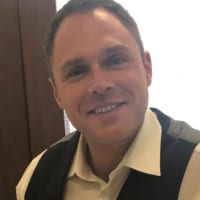
Vince Wainwright is the Founder of Scale Executive Search and Scale Search Group. Scale Search Group brings a refreshing, passionate, and personalized approach to sourcing top executive talent for your growing team, with a focus on aerospace, industrial, manufacturing, oil & gas, and private equity/start-ups.
He and his team serve as an extension of your Human Resources and leadership team to gain a solid understanding of not only the unique position requirements but pair this with your company culture and growth objectives. Then they drive a solid talent search for strong, dynamic, diverse, and experienced mid-level executives and top executive candidates.
